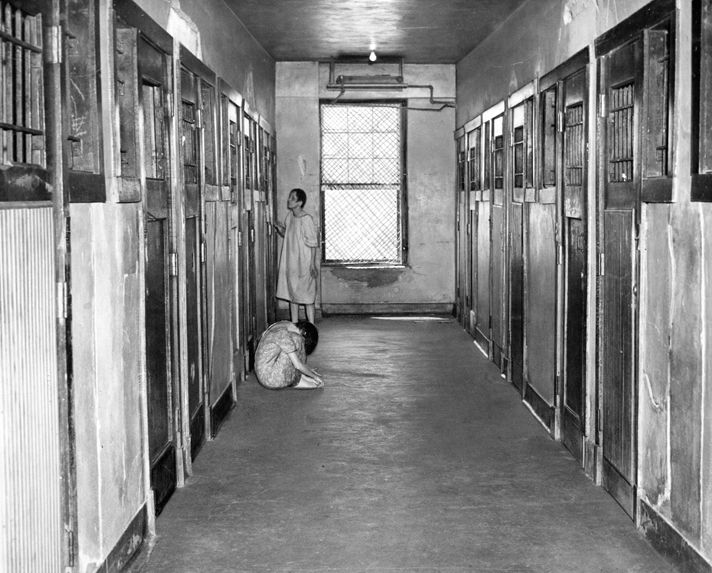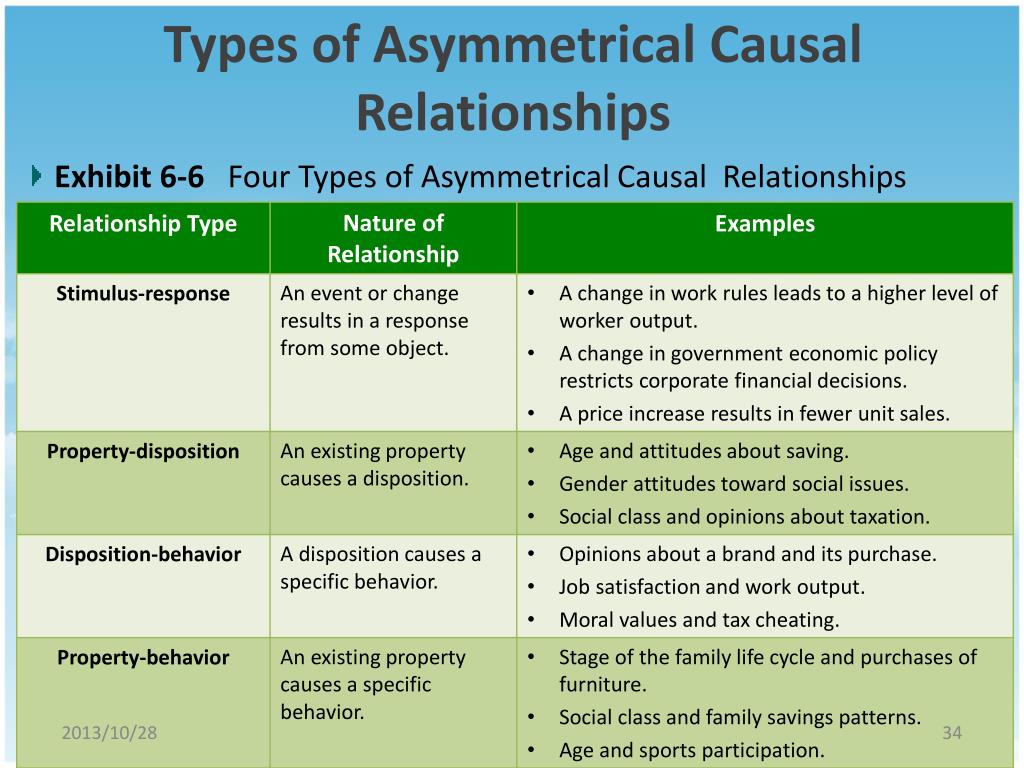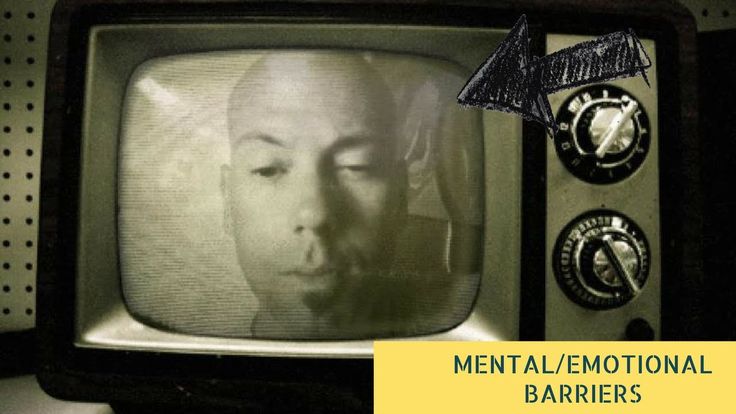Mental hospital people
What Are Mental Hospitals Like?
You know the feeling when you walk through a doorway and you’ve forgotten why you’re there? That’s how it felt to walk through the hospital door and enter the psychiatric ward for the first time. A little bit surreal.
The first time I entered those doors was 17 years ago—I was just 16 and hiding under a very thin white blanket while seated in a wheelchair. My parents nervously escorted me through the industrial-looking doors.
I'm not exactly sure why I was under a blanket but my mind had been playing tricks on me and I was frightened. I've since learned I was having symptoms of paranoia that are fairly common in many people with bipolar disorder. Only a few nights earlier I had heard demons chanting the name of my savior in my head: “ Jesus Christ! Jesus Christ!”
On the day I was admitted, I remember waiting in the ER for what seemed like hours, beforehand. When I arrived, there was a whole new team of medical personnel wanting to see the young girl hiding behind a blanket. My mom prompted me and I shyly stood up, trying really hard to be brave. Thank goodness the first person to greet me was a friendly aide. A friendly aide.
“Hi, I’m Kim. You must be Katie.” She was the first face of hope I met there. After taking me to the nurse’s office to get my vitals, I met Holly, another aide, with a sparkling personality that also helped put me at ease for the remainder of my three weeks there.
The seriousness of the experience didn't hit me until my parents left. It felt surreal and lonely but on some level, I knew I needed help. This was one way to get it.
I didn't know what to expect and it would have been less scary if I knew what would happen in advance.
Why Do People Go to Psych Wards
Inpatient psychiatric care can be very helpful for people struggling with mental health challenges. The intensive care available in mental hospitals can provide the break you need to receive treatment and focus on getting well.
That has certainly been my experience.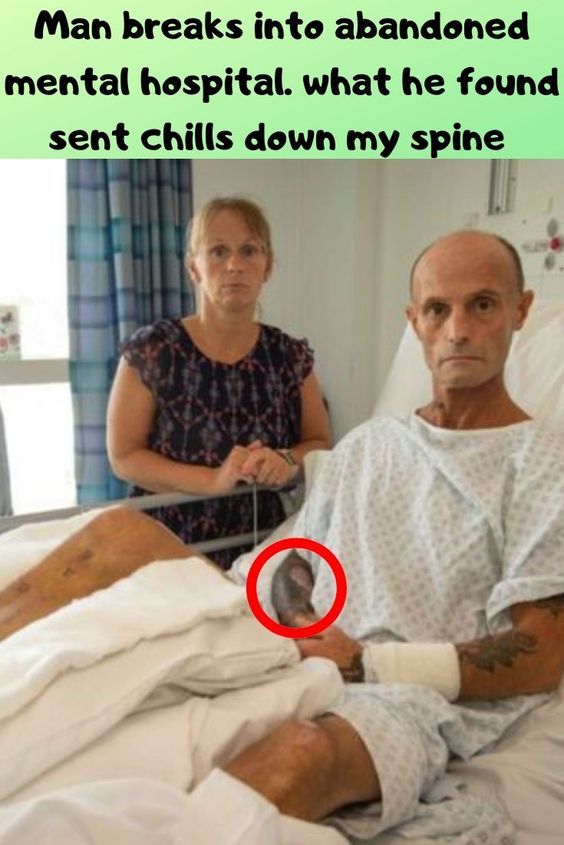 I'm not saying it's a vacation—therapy is hard work—but most people leave feeling better than they did prior to arriving there in the first place.
I'm not saying it's a vacation—therapy is hard work—but most people leave feeling better than they did prior to arriving there in the first place.
In the United States efforts to reduce hospital stays and save money have led to overcrowded emergency rooms and people with serious psychological distress not receiving the treatment they need. Experts define serious psychological distress (SPD) as feelings of sadness, worthlessness, and restlessness that are hazardous enough to impair physical well-being.
According to the National Alliance on Mental Illness, more than 20% of American adults experienced mental illness in 2019. That's one in five adults. Inpatient, 24-hour care comes in a variety of forms. It can exist in a dedicated wing of a hospital, a private hospital, or a public/state hospital. Care is usually provided by psychiatrists, nurses, and therapists.
Mental hospitals can be an effective way to receive treatment but some evidence suggests that intensive outpatient programs (IPOs) can also be helpful.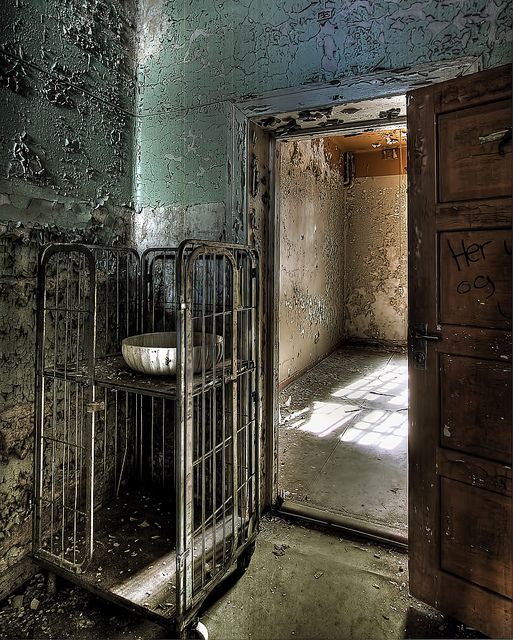
What's most important is to reach out for help and support if you are struggling because treatment works. I'm living proof! You can get better and you will.
How Is The Day Structured in A Psychiatric Ward?
There is a schedule that isn't necessarily the same every day. But you can be sure the staff will keep you on schedule. You are expected to go to bed at a reasonable hour, and sleep for at least 8 hours. There is order to the day.
Mine often looked like this: time to prepare for the day (I got an hour in the morning), breakfast, quiet time, recess/physical activity, TV time, study time (for school-aged patients), recreation time, and group therapy. After lunch, more of the same activities follow until a break for dinner which is often followed by visitor hours, movie time, and lights out.
The activities don't necessarily occur in that order but the schedule is typically posted in a visible place.
When can I see my doctor?
At least once a week I would see the doctor.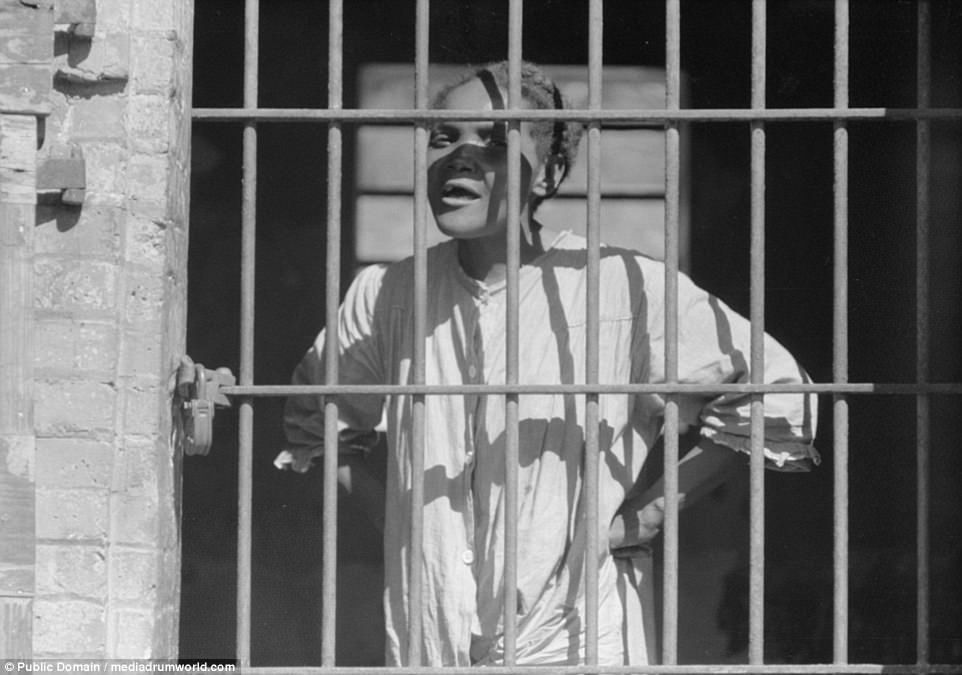 Maybe not as often as I wanted, but at least as often as he could see me. I recommend being as honest and transparent as possible with the doctor. They want to know how you’re doing, so tell them if you’re having a cruddy day, or if your symptoms are bothering you. They are there to help you.
Maybe not as often as I wanted, but at least as often as he could see me. I recommend being as honest and transparent as possible with the doctor. They want to know how you’re doing, so tell them if you’re having a cruddy day, or if your symptoms are bothering you. They are there to help you.
Depending on the laws that govern the state where the facility is located, in the adult ward, may be able to petition your case, provided you voluntarily admitted yourself, and fill out the proper paperwork during the first 72 hours (3 days). In the adult ward I went to, the state of Florida had a law that allowed the patients who had voluntarily admitted themselves to petition the hospital administration in a court of law within the hospital to review and possibly repeal their case for earlier release.
I recommend visiting the Treatment Advocacy Center website for more information on laws concerning admission and release. They monitor the 46 United States that abide by a common set of laws for the treatment of patients and score them in their efficiency to abide by those laws.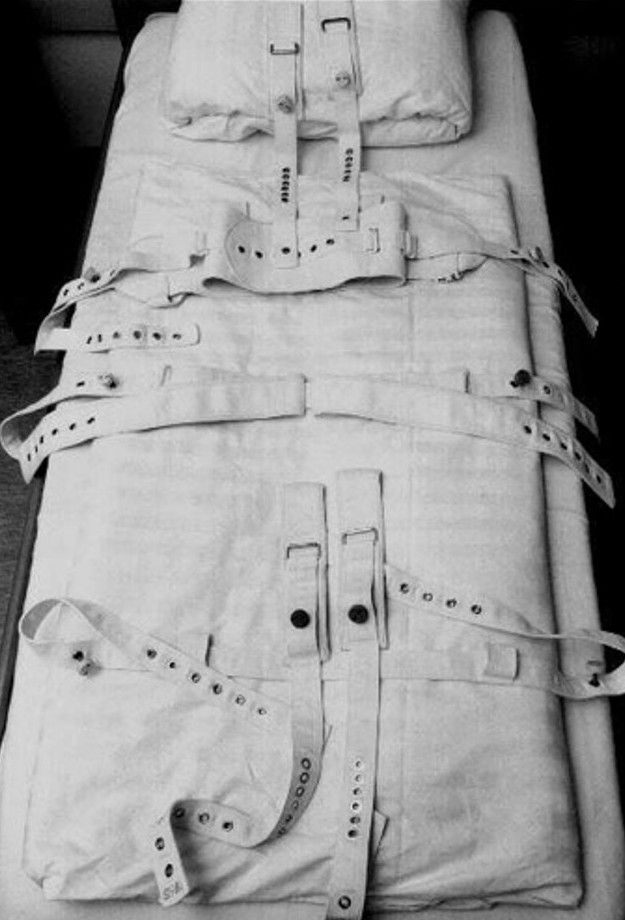 Also, if you were involuntarily committed, there are laws to keep you monitored and unable to be discharged for the first 72 hours (three days).
Also, if you were involuntarily committed, there are laws to keep you monitored and unable to be discharged for the first 72 hours (three days).
I can't say there weren't times when patients got out of control and the staff had to intervene but if you follow the rules and avoid confrontation with others, you should have no problem. Try to keep your distance physically and emotionally from people who you think may have the potential to be violent. Also, remember that many people in the psych ward may just like you and you may even find a friend or two during your time there. I created a lifelong friendship at the psychiatric ward.
What kind of testing is performed?
They draw your blood upon admission. They also take your vitals regularly, usually morning and evening, but at least once a day.
What does the facility look like?
The psych wards I’ve been in had the basics. I would describe them as pretty plain on the inside. Unfortunately, they don’t seem to make interior design a priority.
The first one had no pictures on the walls, and the second had about three abstract paintings and two illustrations that reminded me of the Silence Of The Lambs movie poster (eerie, I know). Another adult ward I stayed in had vaulted ceilings with large photos of beautiful locations around the world. There are usually minimal decorations and “homey” items. It’s easy to understand that it would be a risk to keep any home-like furnishings in the rooms, so it was pretty bare, needless to say.
Are The Beds in Mental Hospital Rooms Comfortable?
Honestly, all of the beds I had slept on were pretty stiff. They had plywood frames and no headboards, with a couple inches of mattress padding. But the sheets and linens were cleaned regularly, thankfully.
I do know that some people were out the next day. And some people stay longer. I was there for 3 weeks. Some people stay a few months. Doctors and staff regularly review the patients’ behaviors. Their input in part dictates the length of treatment at the facility.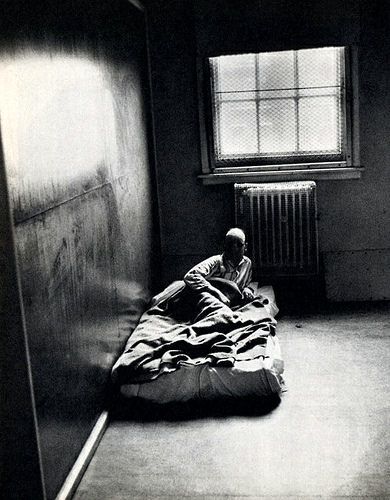 The staff wants to ensure you’re safe and not a harm to yourself or others before you are discharged.
The staff wants to ensure you’re safe and not a harm to yourself or others before you are discharged.
What do you wear?
When I was in the juvenile ward, we wore scrubs. In the adult ward, we wore casual, comfortable everyday clothing. They confiscate any belts, hoodie strings, shoestrings, and the like so as to take away anything that may pose a safety risk.
Is there any physical activity?
This may vary from place to place, but there was always a recreation time to either interact with others in a gym or outside in the enclosed courtyard. Take advantage of the physical activities, your brain needs it as much as your body. And you may end up passing on it during times you want to be alone to think or relax.
How can I avoid sensory overload?
It may be best that once in a while, during times that the patients congregate in a group, you may want to go to your room to rest, away from the noise and commotion. There were days it was hard for me to handle the day-to-day activities in my mental illness, and an even greater a struggle to deal with a blaring movie on TV or a crowd of people talking loudly waiting for their meds in the dayroom. Permit yourself to take breaks from the anxiety-inducing activities, know and identify your triggers, and learn coping skills.
Permit yourself to take breaks from the anxiety-inducing activities, know and identify your triggers, and learn coping skills.
A final note: be sure to make the most of it. Your time in the psych ward may be the darkest night of the soul, or a welcome reprieve from the lifestyle you lead that could help you get your bearings while you’re away. In either case, know there is a light at the end of the tunnel. It may seem like the moments are going on forever, but just remember, “This too shall pass.” So, while you’re waiting for discharge, cooperate, and work on you.
Being isolated within a hospital psychiatric unit may seem contrary to what you need when you’re not in a stable frame of mind. You’re not surrounded by friends or family inside those walls, though they should be more than welcome to come visit you. I would encourage you to seek professional help when deciphering whether or not you should be admitted to a psychiatric unit. I know I received the help I could not have gotten elsewhere had I not been committed.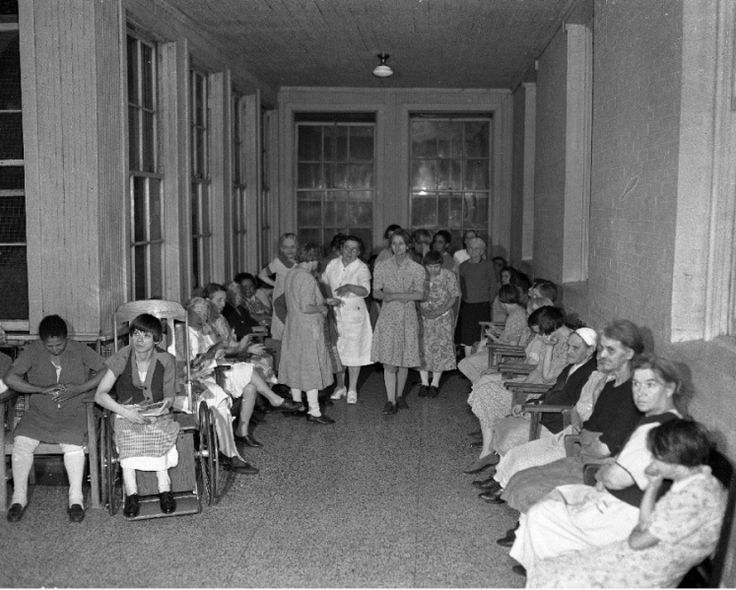 In the end, my mental health benefitted greatly from it.
In the end, my mental health benefitted greatly from it.
For a wider breadth of understanding about hospitalizations and what questions to ask, I recommend reading the information on psychiatric hospitalization on the Mental Health America website. Visit The Depression and Bipolar Support Alliance (DBSA) website for more information about recovery and support after you leave the hospital.
Notes: This article was originally published July 7, 2021 and most recently updated July 15, 2021.
Katie Dale
Katie Dale is a 30-year old writer and blogger living with bipolar disorder. After having her first bipolar episode at 16, the experience of entering the juvenile unit of a psychiatric hospital in a wheelchair wrapped head-to-toe in a thin blanket is seared into her memory. Katie has recounted her story in a soon-to-be-released memoir. For more information on the book and other tips on dealing with bipolar disorder in yourself or loved ones, visit Katie's blog, BipolarBrave.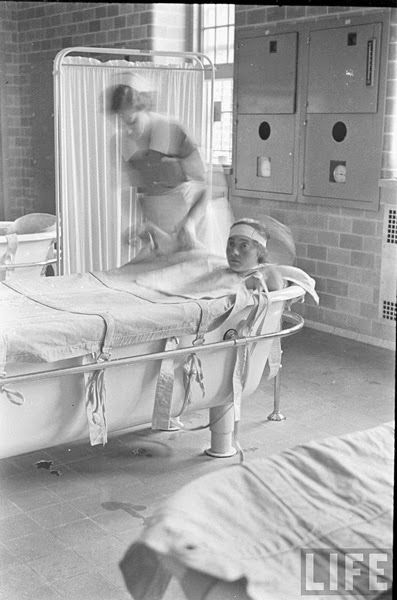 com.
com.
What Are Mental Hospitals Like?
You know the feeling when you walk through a doorway and you’ve forgotten why you’re there? That’s how it felt to walk through the hospital door and enter the psychiatric ward for the first time. A little bit surreal.
The first time I entered those doors was 17 years ago—I was just 16 and hiding under a very thin white blanket while seated in a wheelchair. My parents nervously escorted me through the industrial-looking doors.
I'm not exactly sure why I was under a blanket but my mind had been playing tricks on me and I was frightened. I've since learned I was having symptoms of paranoia that are fairly common in many people with bipolar disorder. Only a few nights earlier I had heard demons chanting the name of my savior in my head: “ Jesus Christ! Jesus Christ!”
On the day I was admitted, I remember waiting in the ER for what seemed like hours, beforehand. When I arrived, there was a whole new team of medical personnel wanting to see the young girl hiding behind a blanket.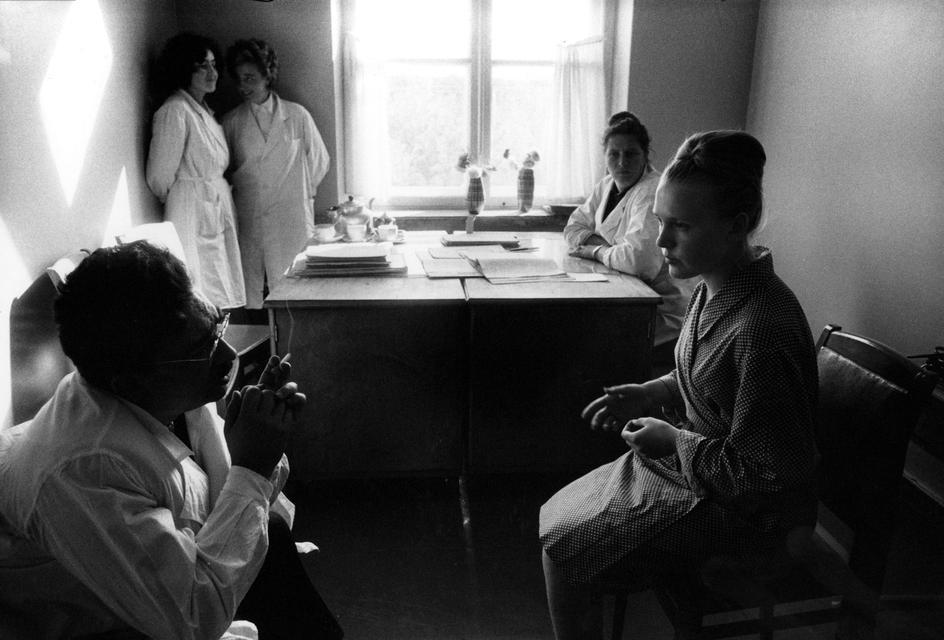 My mom prompted me and I shyly stood up, trying really hard to be brave. Thank goodness the first person to greet me was a friendly aide. A friendly aide.
My mom prompted me and I shyly stood up, trying really hard to be brave. Thank goodness the first person to greet me was a friendly aide. A friendly aide.
“Hi, I’m Kim. You must be Katie.” She was the first face of hope I met there. After taking me to the nurse’s office to get my vitals, I met Holly, another aide, with a sparkling personality that also helped put me at ease for the remainder of my three weeks there.
The seriousness of the experience didn't hit me until my parents left. It felt surreal and lonely but on some level, I knew I needed help. This was one way to get it.
I didn't know what to expect and it would have been less scary if I knew what would happen in advance.
Why Do People Go to Psych Wards
Inpatient psychiatric care can be very helpful for people struggling with mental health challenges. The intensive care available in mental hospitals can provide the break you need to receive treatment and focus on getting well.
That has certainly been my experience.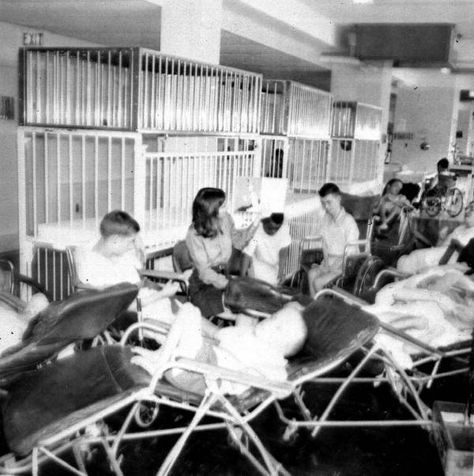 I'm not saying it's a vacation—therapy is hard work—but most people leave feeling better than they did prior to arriving there in the first place.
I'm not saying it's a vacation—therapy is hard work—but most people leave feeling better than they did prior to arriving there in the first place.
In the United States efforts to reduce hospital stays and save money have led to overcrowded emergency rooms and people with serious psychological distress not receiving the treatment they need. Experts define serious psychological distress (SPD) as feelings of sadness, worthlessness, and restlessness that are hazardous enough to impair physical well-being.
According to the National Alliance on Mental Illness, more than 20% of American adults experienced mental illness in 2019. That's one in five adults. Inpatient, 24-hour care comes in a variety of forms. It can exist in a dedicated wing of a hospital, a private hospital, or a public/state hospital. Care is usually provided by psychiatrists, nurses, and therapists.
Mental hospitals can be an effective way to receive treatment but some evidence suggests that intensive outpatient programs (IPOs) can also be helpful.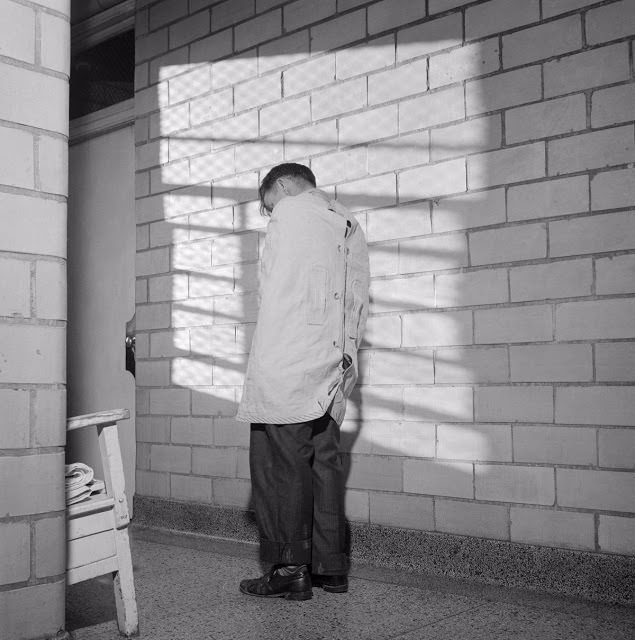
What's most important is to reach out for help and support if you are struggling because treatment works. I'm living proof! You can get better and you will.
How Is The Day Structured in A Psychiatric Ward?
There is a schedule that isn't necessarily the same every day. But you can be sure the staff will keep you on schedule. You are expected to go to bed at a reasonable hour, and sleep for at least 8 hours. There is order to the day.
Mine often looked like this: time to prepare for the day (I got an hour in the morning), breakfast, quiet time, recess/physical activity, TV time, study time (for school-aged patients), recreation time, and group therapy. After lunch, more of the same activities follow until a break for dinner which is often followed by visitor hours, movie time, and lights out.
The activities don't necessarily occur in that order but the schedule is typically posted in a visible place.
When can I see my doctor?
At least once a week I would see the doctor.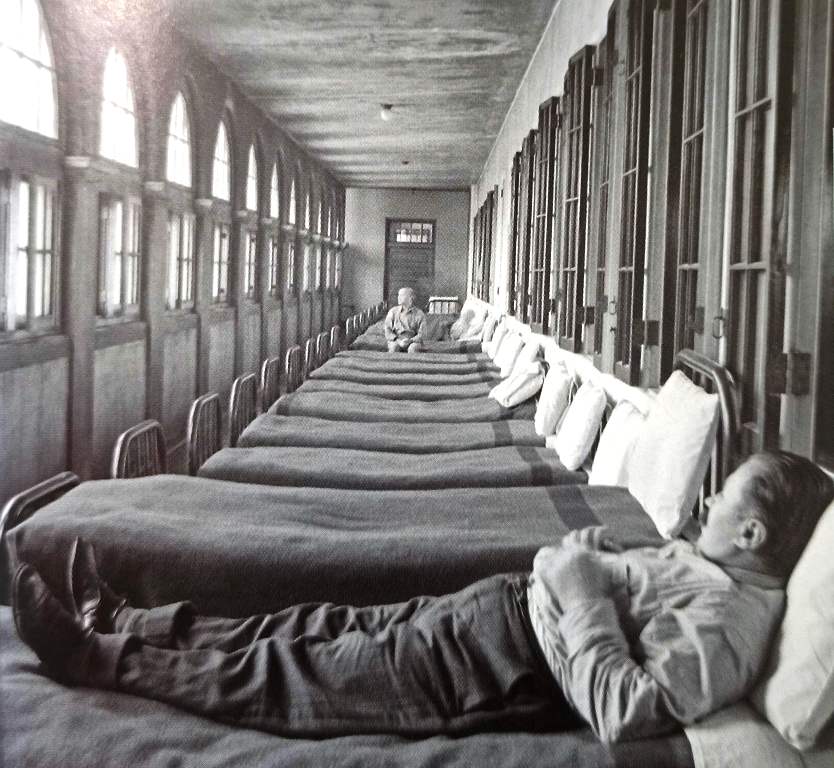 Maybe not as often as I wanted, but at least as often as he could see me. I recommend being as honest and transparent as possible with the doctor. They want to know how you’re doing, so tell them if you’re having a cruddy day, or if your symptoms are bothering you. They are there to help you.
Maybe not as often as I wanted, but at least as often as he could see me. I recommend being as honest and transparent as possible with the doctor. They want to know how you’re doing, so tell them if you’re having a cruddy day, or if your symptoms are bothering you. They are there to help you.
Depending on the laws that govern the state where the facility is located, in the adult ward, may be able to petition your case, provided you voluntarily admitted yourself, and fill out the proper paperwork during the first 72 hours (3 days). In the adult ward I went to, the state of Florida had a law that allowed the patients who had voluntarily admitted themselves to petition the hospital administration in a court of law within the hospital to review and possibly repeal their case for earlier release.
I recommend visiting the Treatment Advocacy Center website for more information on laws concerning admission and release. They monitor the 46 United States that abide by a common set of laws for the treatment of patients and score them in their efficiency to abide by those laws.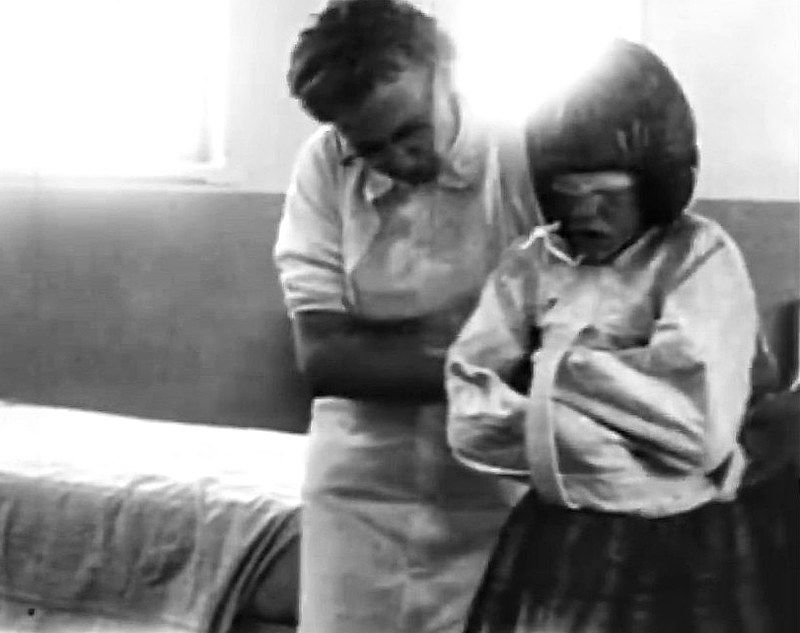 Also, if you were involuntarily committed, there are laws to keep you monitored and unable to be discharged for the first 72 hours (three days).
Also, if you were involuntarily committed, there are laws to keep you monitored and unable to be discharged for the first 72 hours (three days).
I can't say there weren't times when patients got out of control and the staff had to intervene but if you follow the rules and avoid confrontation with others, you should have no problem. Try to keep your distance physically and emotionally from people who you think may have the potential to be violent. Also, remember that many people in the psych ward may just like you and you may even find a friend or two during your time there. I created a lifelong friendship at the psychiatric ward.
What kind of testing is performed?
They draw your blood upon admission. They also take your vitals regularly, usually morning and evening, but at least once a day.
What does the facility look like?
The psych wards I’ve been in had the basics. I would describe them as pretty plain on the inside. Unfortunately, they don’t seem to make interior design a priority.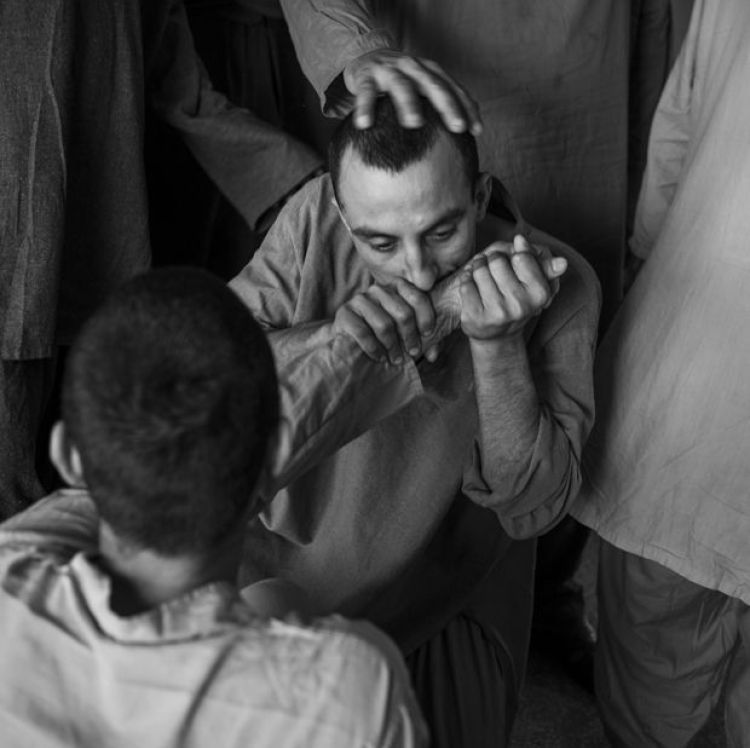
The first one had no pictures on the walls, and the second had about three abstract paintings and two illustrations that reminded me of the Silence Of The Lambs movie poster (eerie, I know). Another adult ward I stayed in had vaulted ceilings with large photos of beautiful locations around the world. There are usually minimal decorations and “homey” items. It’s easy to understand that it would be a risk to keep any home-like furnishings in the rooms, so it was pretty bare, needless to say.
Are The Beds in Mental Hospital Rooms Comfortable?
Honestly, all of the beds I had slept on were pretty stiff. They had plywood frames and no headboards, with a couple inches of mattress padding. But the sheets and linens were cleaned regularly, thankfully.
I do know that some people were out the next day. And some people stay longer. I was there for 3 weeks. Some people stay a few months. Doctors and staff regularly review the patients’ behaviors. Their input in part dictates the length of treatment at the facility. The staff wants to ensure you’re safe and not a harm to yourself or others before you are discharged.
The staff wants to ensure you’re safe and not a harm to yourself or others before you are discharged.
What do you wear?
When I was in the juvenile ward, we wore scrubs. In the adult ward, we wore casual, comfortable everyday clothing. They confiscate any belts, hoodie strings, shoestrings, and the like so as to take away anything that may pose a safety risk.
Is there any physical activity?
This may vary from place to place, but there was always a recreation time to either interact with others in a gym or outside in the enclosed courtyard. Take advantage of the physical activities, your brain needs it as much as your body. And you may end up passing on it during times you want to be alone to think or relax.
How can I avoid sensory overload?
It may be best that once in a while, during times that the patients congregate in a group, you may want to go to your room to rest, away from the noise and commotion. There were days it was hard for me to handle the day-to-day activities in my mental illness, and an even greater a struggle to deal with a blaring movie on TV or a crowd of people talking loudly waiting for their meds in the dayroom.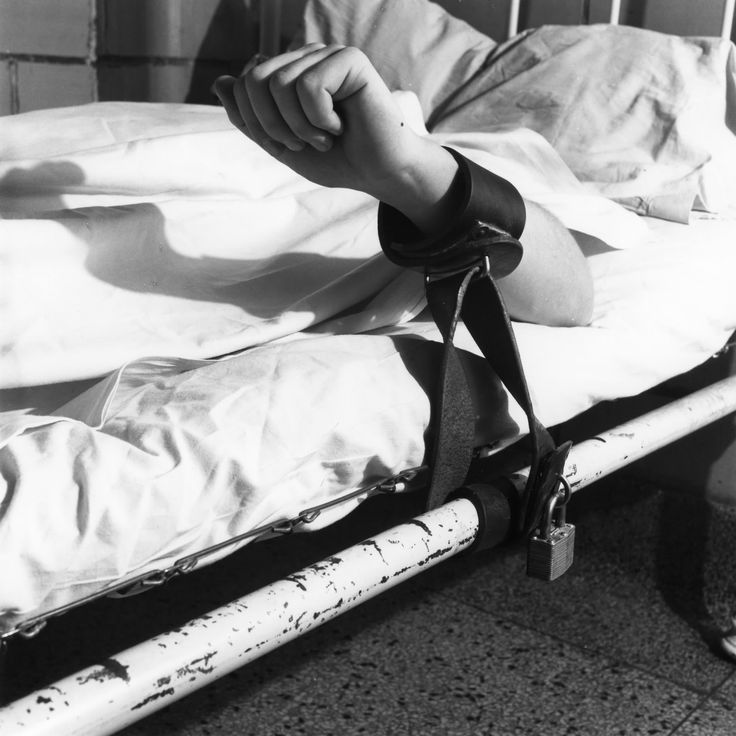 Permit yourself to take breaks from the anxiety-inducing activities, know and identify your triggers, and learn coping skills.
Permit yourself to take breaks from the anxiety-inducing activities, know and identify your triggers, and learn coping skills.
A final note: be sure to make the most of it. Your time in the psych ward may be the darkest night of the soul, or a welcome reprieve from the lifestyle you lead that could help you get your bearings while you’re away. In either case, know there is a light at the end of the tunnel. It may seem like the moments are going on forever, but just remember, “This too shall pass.” So, while you’re waiting for discharge, cooperate, and work on you.
Being isolated within a hospital psychiatric unit may seem contrary to what you need when you’re not in a stable frame of mind. You’re not surrounded by friends or family inside those walls, though they should be more than welcome to come visit you. I would encourage you to seek professional help when deciphering whether or not you should be admitted to a psychiatric unit. I know I received the help I could not have gotten elsewhere had I not been committed.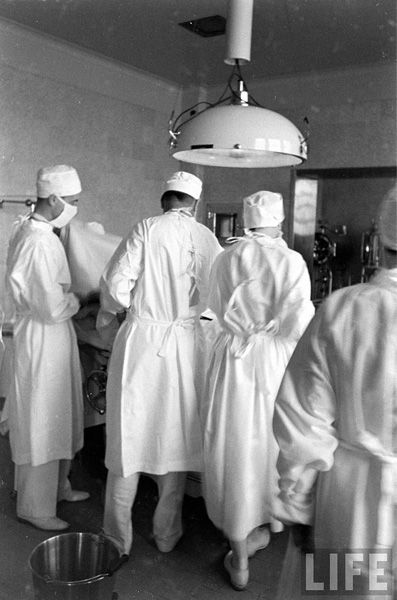 In the end, my mental health benefitted greatly from it.
In the end, my mental health benefitted greatly from it.
For a wider breadth of understanding about hospitalizations and what questions to ask, I recommend reading the information on psychiatric hospitalization on the Mental Health America website. Visit The Depression and Bipolar Support Alliance (DBSA) website for more information about recovery and support after you leave the hospital.
Notes: This article was originally published July 7, 2021 and most recently updated July 15, 2021.
Katie Dale
Katie Dale is a 30-year old writer and blogger living with bipolar disorder. After having her first bipolar episode at 16, the experience of entering the juvenile unit of a psychiatric hospital in a wheelchair wrapped head-to-toe in a thin blanket is seared into her memory. Katie has recounted her story in a soon-to-be-released memoir. For more information on the book and other tips on dealing with bipolar disorder in yourself or loved ones, visit Katie's blog, BipolarBrave. com.
com.
“The first thing I learned was to dodge”: employees of mental hospitals about their work
Violence in mental hospitals is systemic, but not only patients suffer from it. Often, healthcare workers are also unprotected and attacked in their workplaces. We spoke to mental hospital staff about their daily routine, violence, and industry issues.
“During my practice, my nose and hand were broken, I had a craniocerebral and contusion”
Maria
Ward nurse at the district psychiatric hospital, 47 years old
I wanted to be a nurse since school, I have always been attracted to working with patients. The doctor prescribes the treatment, and the nurse performs it. And it is from her actions that it becomes easier for a person - it does not matter whether you put a catheter or an enema. Mom was against me going to a "fucking" medical school, so I'm a philologist by my first education. She worked in her specialty, achieved success, and then at 42 she went into medicine because she did not feel high and fulfilled in life.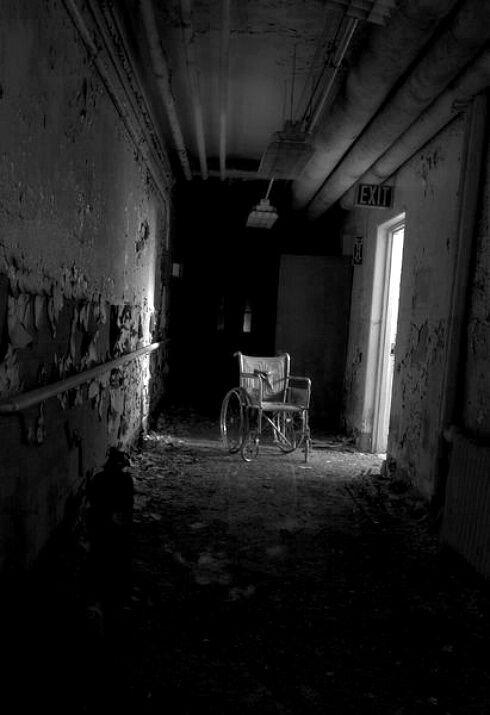 My husband advised me to go to medical school, and I went out of the chair of the editor-in-chief to wash my asses.
My husband advised me to go to medical school, and I went out of the chair of the editor-in-chief to wash my asses.
I never thought that I would work in psychiatry, although our director jokes that there are no random people here. When I decided to work in a hospital, I came to the employment service, and I was sent as a nurse to the local PNI (psycho-neurological boarding school). My friend then worked in psychiatry and said: “Why do you need PNI if you can go to a psychiatric hospital? I will help you". I was accepted as a junior nurse in the women's department. For a year I sanitized, listening to myself: “Is this mine? Am I really "fulfilling my dream"? Is it true that I am in my place?” And after each shift, the answers to these questions were positive. After working for a year, I finally decided to enter a medical college to become an average ward nurse, and for four years I combined work and study. I've been working like this for almost six years now and I'm not going to leave.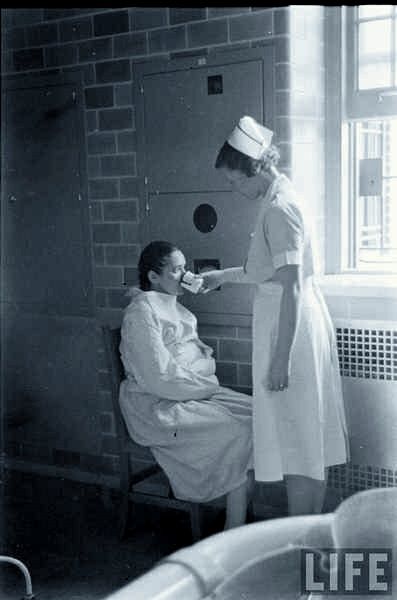
In our psychiatric hospital, patients hardly change. You discharge a person in the morning, and in the evening he comes again. Someone has been lying like this for years, for many reasons. So it turns out that after some time you begin to consider these patients as part of your life, family. You go to work and see familiar patients, you understand, you listen to their stories, you worry.
A mental hospital is a completely different realm, with different moral and ethical laws, where not everyone can work. There were cases when a new nurse came to us and could not stand it until lunch. One ran away so that she even forgot her things, we caught up with her.
It takes nerves of steel to keep up with this job. There is a lot of shit here, even literally: patients throw it, they can eat it. I worked in the women's department for five years and faced many diagnoses, not only mental ones. This is what I like about psychiatry, that you do everything here. Conditionally - they brought you a patient who sawed off half of his leg, you will do dressings, this is surgery.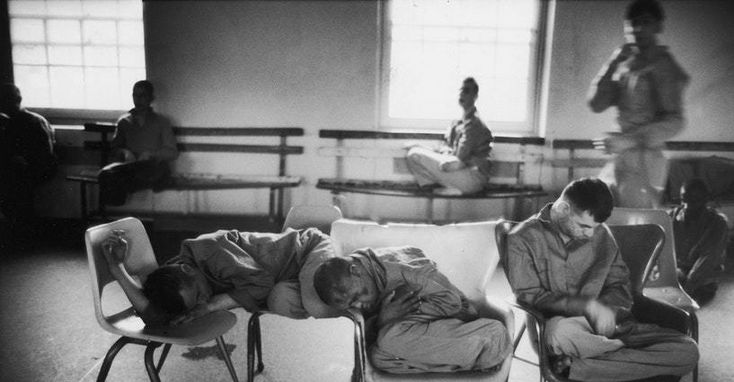 Brought with lice - you will treat the skin, this is dermatology. Once a woman came in, I went to process her and wash her in the shower, and she had maggots under her breasts. That's how you learn everything.
Brought with lice - you will treat the skin, this is dermatology. Once a woman came in, I went to process her and wash her in the shower, and she had maggots under her breasts. That's how you learn everything.
Each patient is a person with his own world, and sometimes more than one. There are patients who need to be taken caress: “Hare, well, let’s go”, with others strictly: “I said, let’s go, then let’s go”, there are those who need to be flattered: “Well, there’s no one but you, let’s go, you will help me” . Some people are better off playing along, for example, I had a patient who thought she had stolen Horde gold. She ran up to me and said: "Masha, dwarfs will come to me in a taxi, and we will go to spend gold." Well, what else is left for me but to say: "You lie down, and I will stand by the window, if the dwarfs arrive, I will tell you." It is much easier for me to find contact and compromise than by some draconian methods. But there are employees who find it easier to grab the collar and achieve their goal, they do not waste their mental strength.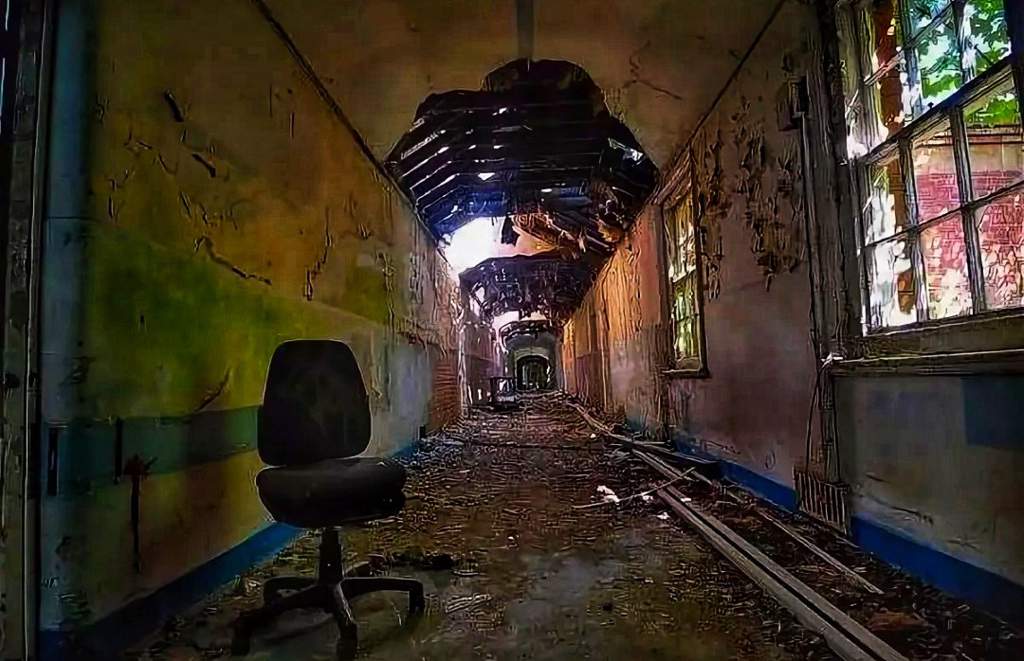
When we forbid something to patients, we do it not because we are bad, but because there are rules that are written in blood in psychiatry. For example, do not give pencils unattended. There was a case when a patient persuaded a nurse to give him a pencil to draw - this is good, occupational therapy, but everything should happen in a separate room under supervision. And she gave it just like that, because the person was adequate and was already preparing for discharge. Another patient ran up, grabbed this pencil and stuck it in the nurse's eye . Her eye was cosmetically restored, but she lost her vision completely, and then her job. You can’t take food out of the dining room yet - other patients may try to take it away, then the patient will quickly begin to stuff everything into himself and choke. On my shift, the patient choked and almost died, but we were able to revive her. Another choked, her vocal cords were blocked, and she could not call for help. Another one was fixed on matings on the bed as prescribed by the doctor, and some kind soul from the patients put a cabbage roll in her mouth. They didn’t even have time to take it off the mating, I immediately suffocated.
They didn’t even have time to take it off the mating, I immediately suffocated.
In the end, I had to go to the psychiatric coronavirus ward, where they lie with suspected covid or a confirmed diagnosis.
Already had coronavirus twice. The last time was because of a patient who called himself the Emperor of Japan. At night, he began to buzz, I went to calm him down, a fight broke out between us, he tore off my protective suit and spat in my face - I got sick.
People with a mental illness often end up in the hospital, but not in an exacerbation. For example, a patient with a disability - he just got bored at home, because he needs to be fed, he needs to be monitored, he needs to be washed. Relatives bring and say that he has a sleep disorder, and this person will be with us until he is taken away. A may never be taken away, and he lies for years . You call relatives, and they say: "I can't" - and hang up, but they receive a pension and all benefits for him.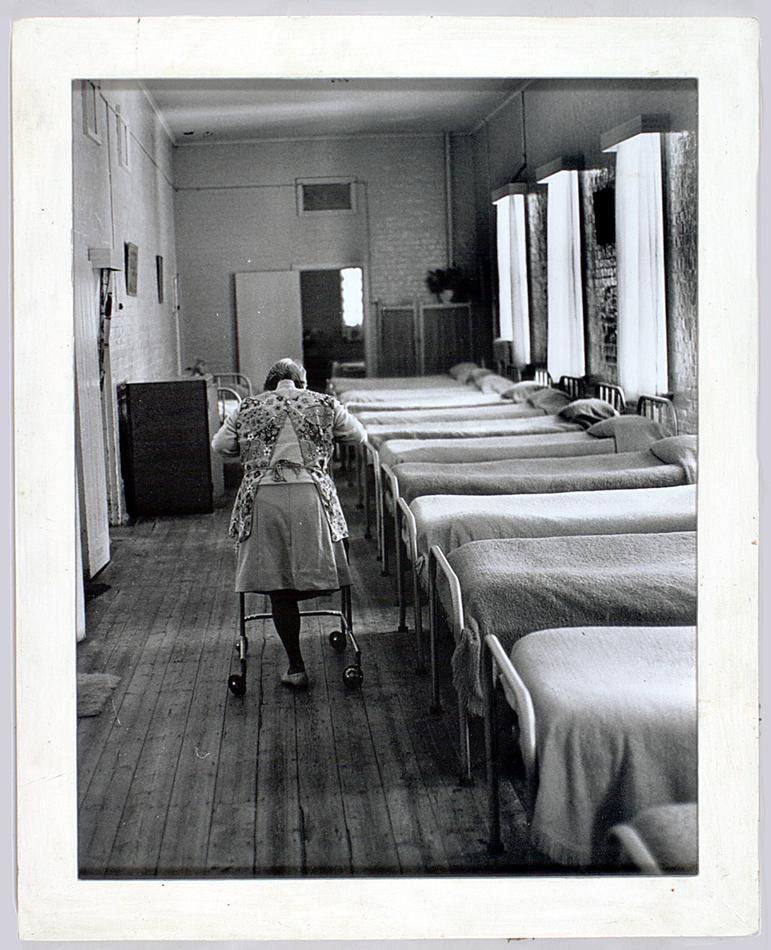 Unfortunately, we don’t have leverage to put pressure on relatives, we don’t have the right to tell them: “Are you ***** [goofed], or what, completely?” And such people are very sorry.
Unfortunately, we don’t have leverage to put pressure on relatives, we don’t have the right to tell them: “Are you ***** [goofed], or what, completely?” And such people are very sorry.
The first thing I learned in psychiatry was to dodge. And until she learned, she came home with bruises, her husband asked: “Are you being beaten there, or what?” There is an opinion that in mental hospitals there is a lot of harshness from the medical staff, but you need to understand the specifics of the places in which we work. There are patients who, because of their illness, understand only the position of strength. You can at least talk to him, it's useless. And we all want to come home alive, so if the situation arises when either you or you, the choice is obvious. Of course, no one has the right to use physical force on a patient, but if a fist flies at you, it's hard to control your adrenaline. I just jump and knock down the patient - it's like in the alley, the white coat does not change anything - if they beat me, I will defend myself.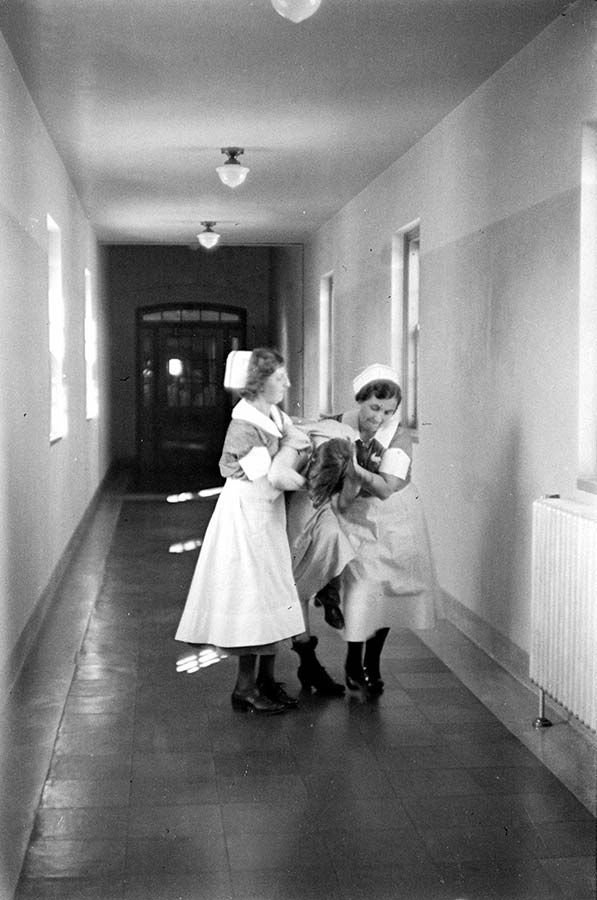 I and a nurse work in my department - we are two women, I am 48 kg, and she is the same, and no one will come to help us. We have no doors in the department, nowhere to hide.
I and a nurse work in my department - we are two women, I am 48 kg, and she is the same, and no one will come to help us. We have no doors in the department, nowhere to hide.
The human factor should not be overlooked - we are living people, we get tired, we break down. Here you are washing a patient, and he spits in your face and yells terrible things. One realized that children are my weak point. And she screamed at me that she would steal my child and brutally rape me. And the shift is 24 hours, and what, listen to this for a day? Won't you hit? Come and hit. Yes, this is unprofessional, you need to be punished for this - you can fire me, but is there a line behind the gate, or something, for my place for 20 thousand a month? No, there is only one queue - of patients. I always try to leave the place of conflict for at least five minutes. I used physical impact only during attacks, when we knit, and in such cases. And, I think, I bring a lot of benefits and mostly I find contact with the sick. Of course, if an employee creates cruelty for the sake of cruelty, we get rid of such people and stop them.
Of course, if an employee creates cruelty for the sake of cruelty, we get rid of such people and stop them.
In December last year, the Ministry of Labor issued a decree that regulates the work of all departments, including psychiatric ones. It is necessary that there be an alarm, a panic button - we don’t have it, you just yell that you are being killed, but only if you are not strangled. I was once strangled by a patient, and I could not call for help. By a tragic coincidence, this was seen only by a deaf-mute patient, who also could not scream. They beat me back, I don’t even remember how, I was already almost unconscious. I called my husband and said that he almost became a widow. By the way, he is a researcher at the museum, and all the caretakers have panic buttons in their pockets. And I have a fig in my pocket.
During my practice, my nose was broken, my hand was broken, I had a craniocerebral and contusion. We don't have bodyguards, male orderlies in women's departments, we don't have means of protection: this is not humane.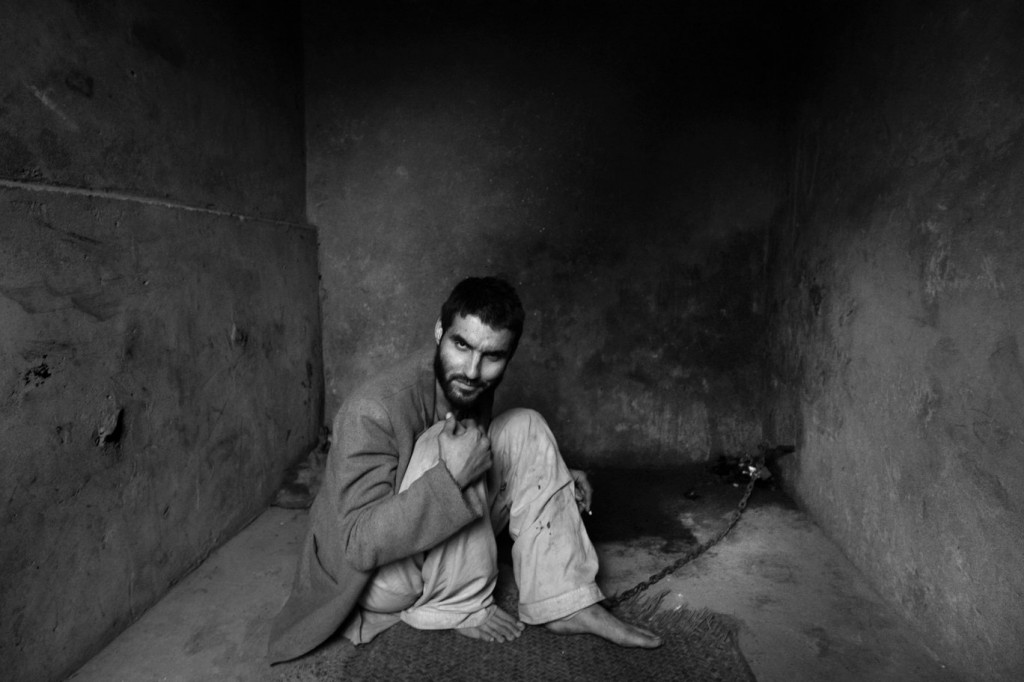 And to beat a nurse is humane, she is to blame, she lost her vigilance.
And to beat a nurse is humane, she is to blame, she lost her vigilance.
Another huge problem is the colossal shortage of personnel in the junior medical staff. The nurse turns out to be alone on the shift, she needs to wash twelve asses, and the patients do not understand anything - the patient is lying, the Germans are outside her window, and then some aunt comes to wash her. She starts screaming, fighting back, sometimes you smack her ass so that she freezes for at least five seconds, and at that moment you quickly wash her. Is this cruelty? Someone will say yes, and someone - that this is the work. Is it possible to do without it? You can, if there are three orderlies, and they have not one hour left, but ten.
We have up to 75 people in the department. According to the norm, there should be one nurse for 20 people and one nurse for 15 people, and we have only one nurse and two nurses. And each patient must be lifted, escorted to the toilet, helped to wash, feed, give medicine.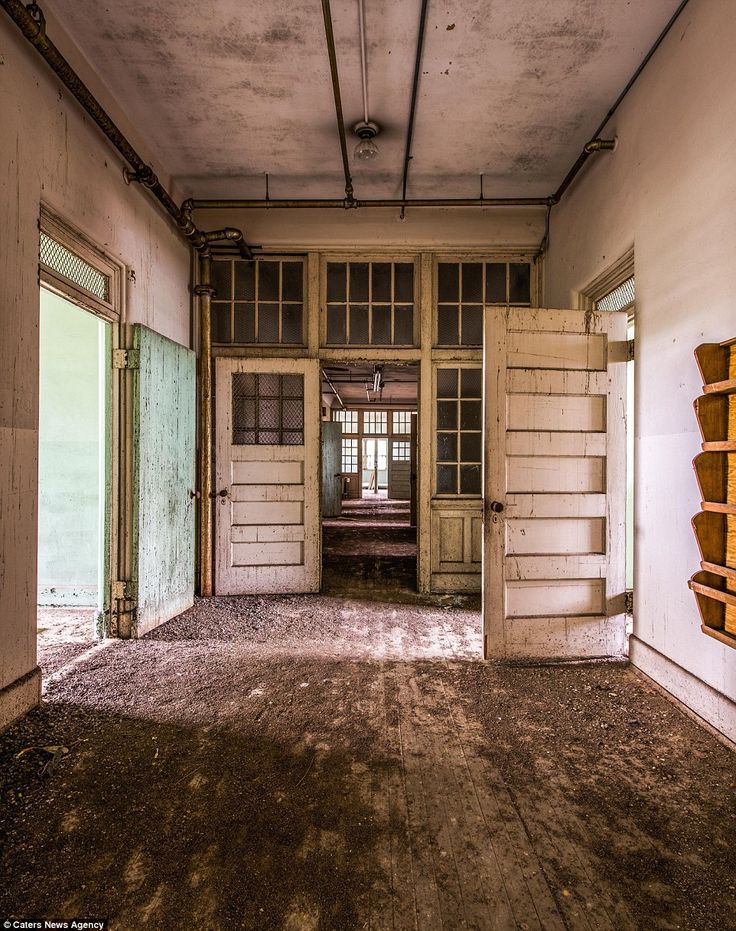 I leave to work for 36 hours - first day, then night at home and go out for another day. The average salary is 20 thousand. No one to work. I am driven only by the idea that if my husband did not earn enough, I am not sure that I would have stayed here.
I leave to work for 36 hours - first day, then night at home and go out for another day. The average salary is 20 thousand. No one to work. I am driven only by the idea that if my husband did not earn enough, I am not sure that I would have stayed here.
But there are many pluses: in addition to being really interesting and good practice, we have a lot of goodies, two vacations, 28 and 35 days each; schedule day after four, that is, you work for a day and rest for four days; retirement at age 50, if you survive. Now new employees come to us because they have nowhere else to go : a person may have a criminal record or alcohol addiction, and he comes to us as an orderly, and we will take him, because there is no one else to take. If there were decent salaries, we would take adequate people who go to the hospital by vocation.
Details on the topic
“The doctor said she wanted to torture me”: people about violence in psychiatric hospitals
“The doctor said she wanted to torture me”: people about violence in psychiatric hospitals
I can’t take it anymore, it’s already beyond”
Elena (name changed at the request of the heroine)
Psychiatrist, 30 years old
My total experience is five years, including residency.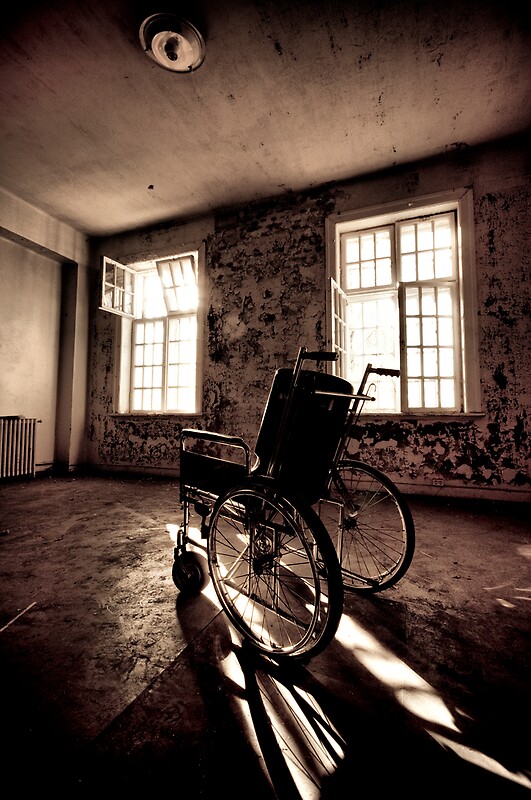 For the third year now, I have been an attending psychiatrist in the day care department. This means that my patients come to me on their own according to a schedule that is selected individually, depending on the severity of the disease. In general, in the structure of the state hospital there is a dispensary department, like a polyclinic; there is a day care unit where people come, communicate with doctors, attend psychosocial rehabilitation events, receive medicines and go home; and there is a hospital where patients stay around the clock.
For the third year now, I have been an attending psychiatrist in the day care department. This means that my patients come to me on their own according to a schedule that is selected individually, depending on the severity of the disease. In general, in the structure of the state hospital there is a dispensary department, like a polyclinic; there is a day care unit where people come, communicate with doctors, attend psychosocial rehabilitation events, receive medicines and go home; and there is a hospital where patients stay around the clock.
My patients are completely different, ranging in age from 15 to 99 years old. Working, unemployed, students, many talented creative people, there are simple hard workers. Psychiatrists have the widest anamnesis, I know the stories of almost all of their lives. Were there any problems in fetal development, when he spoke, what time he started walking, how things were in the kindergarten, when he went to school, what subjects he liked, how the first love and relationships flowed, what colleges and institutes he graduated from, what are his preferences and hobbies.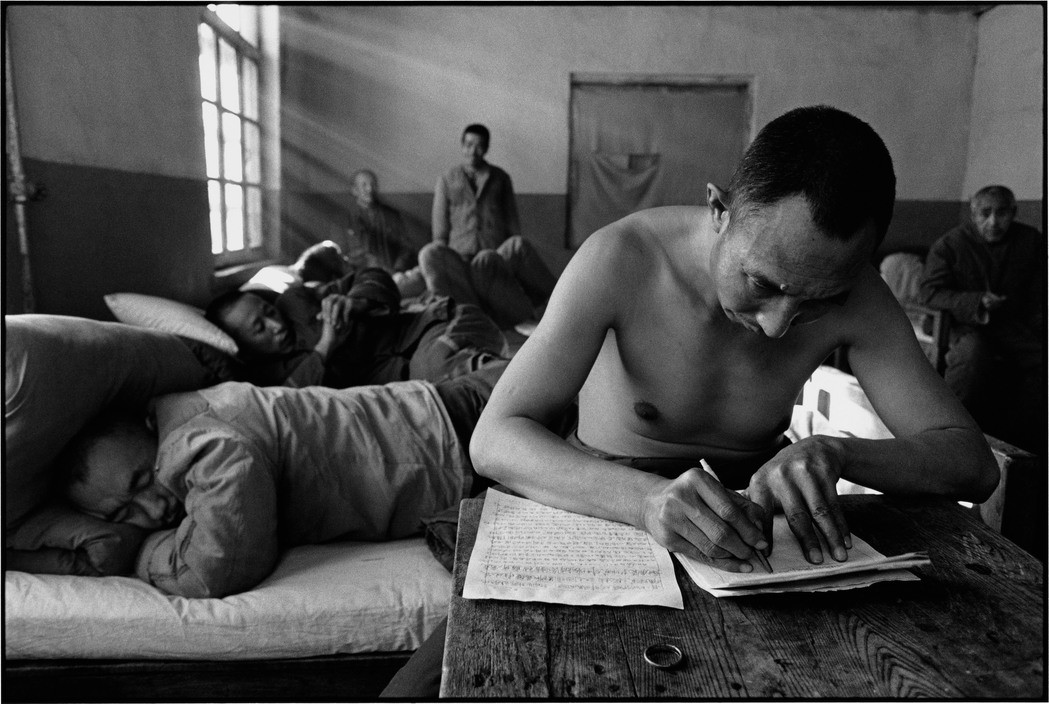 Often I feel sorry for them, sometimes I get angry - what to hide. You can have many feelings for patients, the main thing is not to scold yourself for it, but to work through emotions so that they do not harm my work.
Often I feel sorry for them, sometimes I get angry - what to hide. You can have many feelings for patients, the main thing is not to scold yourself for it, but to work through emotions so that they do not harm my work.
My feeling is that many doctors go into private practice because they can't stand it in public practice. We always have an acute shortage of middle and junior staff, I don’t even understand why. Nurses have good salaries, a long vacation, the length of service is considered differently - a year for two. Nevertheless, no one goes to work, there are not enough staffing in hospitals. There is no feeling that the state is trying to do something about it. But this is an old song about funding medicine. If there were opportunities, great specialists would compete for places and the best would remain, who work well and who have hearts. And now there is a negative selection - three and a half diggers remain, who pull everything on themselves, and the rest of the employees are pensioners or people who are not taken to other places.
Nurses have to work hard, they stay with patients for days, and, of course, if someone is rowdy, they can do something to him, because they no longer have the strength to negotiate.
Now, due to the covid, problems have also begun with doctors: there is a very heavy load on our link, there are not enough employees. At the same time, the number of people with anxiety or depressive disorders has increased, so the responsibility also increases, since this is a red risk for suicide and self-harm. There are many people with signs of emotional dysregulation requiring therapeutic treatment, care, attention, rehabilitation. They also come with post-COVID syndrome, which causes problems with sleep, appetite, odors, anxiety, and panic. Compared to 2019sales of the antidepressant Zoloft increased by 40% last year. It also says something.
Some patients feel like walking on eggshells. People with a red risk are always very wounded about all personalities, who can perceive simple recommendations as a rejection or a negative statement.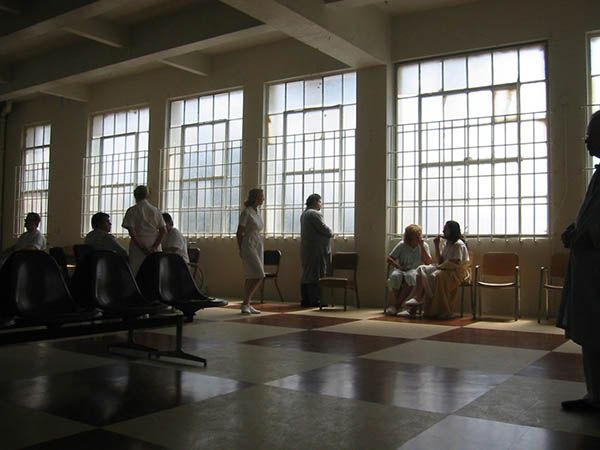 And when there are a lot of such people, it takes all the strength. You need to choose your words carefully, be soft, plastic, but always consistent. It's complicated. On the other hand, doctors are also under pressure from the unknown, it is not clear what will happen tomorrow, what to expect, people around are dying, loved ones are suffering and getting sick - a very aggravating situation. And you still come to work, where you have to give yourself and help everyone. Sometimes there are thoughts that I can’t do this anymore, that this is already beyond .
And when there are a lot of such people, it takes all the strength. You need to choose your words carefully, be soft, plastic, but always consistent. It's complicated. On the other hand, doctors are also under pressure from the unknown, it is not clear what will happen tomorrow, what to expect, people around are dying, loved ones are suffering and getting sick - a very aggravating situation. And you still come to work, where you have to give yourself and help everyone. Sometimes there are thoughts that I can’t do this anymore, that this is already beyond .
From time to time, of course, I think about how I want to quit. But I understand that this is due to fatigue, and when you switch, it becomes easier. You sit, rest, and it's like nothing. You turn into a superhero again and go to work. This is a medical story in general. If this is not worked out in oneself, then this mode can lead to powerful burnout. We need therapy, behavioral activation, the fight against stupid perfectionism, an emphasis on rest and self-care.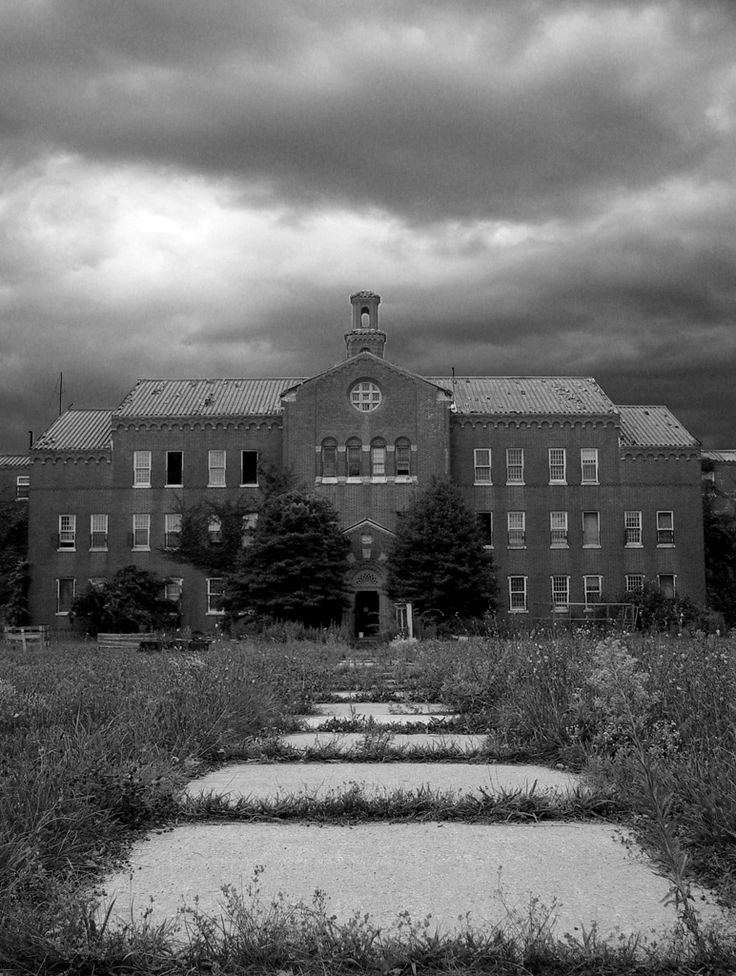 I really want, of course, to immerse myself in work and cure everyone, but this never happens and never will. In psychiatry, diseases are chronic, a cured patient will be followed by a new one, and everything will start all over again. Therefore, as in an airplane: first, the mask on yourself, then on the child.
I really want, of course, to immerse myself in work and cure everyone, but this never happens and never will. In psychiatry, diseases are chronic, a cured patient will be followed by a new one, and everything will start all over again. Therefore, as in an airplane: first, the mask on yourself, then on the child.
More on the subject
Orderlies, taboos and friendship: an extract from an honest book about a psychiatric hospital
Orderlies, taboos and friendship: an extract from an honest book about a psychiatric hospital go there completely. People who usually turn to me at the hospital are often maladjusted. Their illness is so severe that they are unable to work. And people who can pay for expensive psychotherapy more often just need support, there are more guiding points. Patients who are prescribed medication always need psychotherapy, individual and group. And where will they get it in a private clinic? A consultation costs four thousand, drugs about two thousand a month, group sessions another three thousand, and only ten thousand a month, just to heal.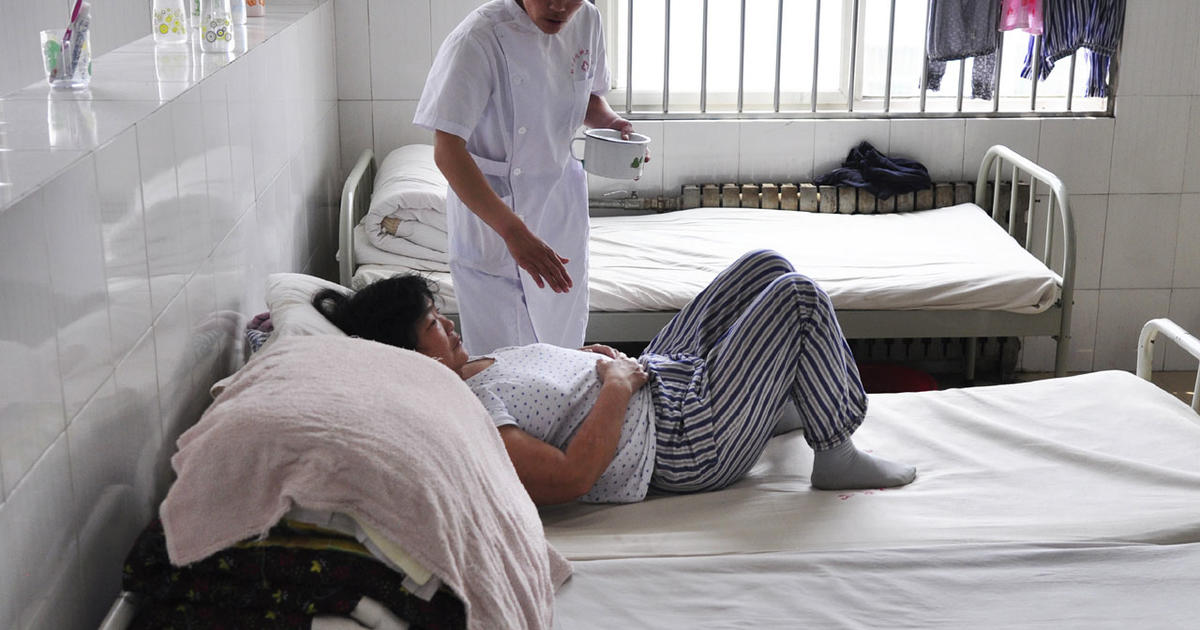 What if it's a pensioner or a teenager? Now I want to help people who cannot pay for treatment.
What if it's a pensioner or a teenager? Now I want to help people who cannot pay for treatment.
I think my example is a typical survivor's mistake because our hospital is considered good. But I know how the staff can treat patients and helpless people, how some doctors ruin lives with diagnoses, and it hurts me a lot. I don’t really like to talk about it, because it can be perceived by my colleagues as if I think that I know better than anyone, but I, as they say, feel sorry for the state. Everything comes from doctors : if he is illiterate, stupid, sometimes, frankly, unbalanced in himself, then the devil will be going on in his department. And patients will commit violence, because even though they are on treatment, they still have a desire to win back their self, their boundaries.
In our country, there is a colossal level of stigmatization of mental health care - psychiatry is not valued by people. People are afraid to go to the doctors because they remember punitive psychiatry in the history of the Soviet Union. In addition, I regularly observe how in the comments under the news about, for example, a woman in postpartum depression who committed an extended suicide with her child, they write “she is a psychic, crazy, such people should sit in a fool.”
In addition, I regularly observe how in the comments under the news about, for example, a woman in postpartum depression who committed an extended suicide with her child, they write “she is a psychic, crazy, such people should sit in a fool.”
I will say more, when I was a student, I surveyed students about nurses and nurses, asked questions about the stigmatization of psychiatry. And many of the respondents believed that people with mental illness could not give birth to children, could not go to college or drive a car, and a psychiatrist could harm them.
Psychiatry is very populated with different myths, fears, prejudices even among the staff. When you think about it, such futility of being comes upon you. There are people who know how and want to work well, but this system cannot be moved .
“Every second person in an acute condition promises to kill us”
Valentina (name changed at the request of the heroine)
Nurse, 25 years old
nursing in psychiatry.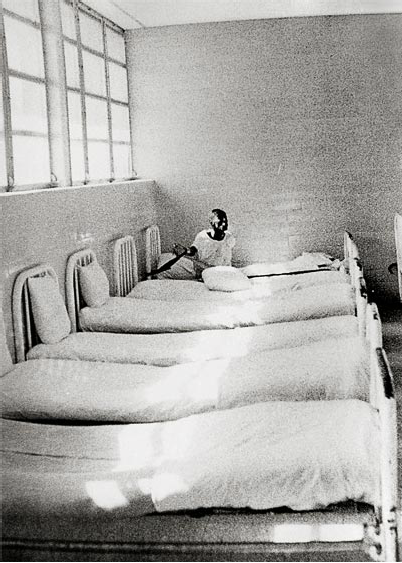 Initially, getting into medical college was pure luck. I didn’t want to go into medicine at all, but I started studying it simply because I missed the deadline for entering another educational institution.
Initially, getting into medical college was pure luck. I didn’t want to go into medicine at all, but I started studying it simply because I missed the deadline for entering another educational institution.
I came to psychiatry (narcology) right after graduation, in 2015. Considering all possible job options in my city and the level of remuneration in medicine, I had only two options: intensive care or psychiatry, where I was invited earlier, and I agreed. We have two buildings in the hospital, three floors are occupied by the psychiatry department in one building, two floors of narcology in another. I work in two departments at once: in narcology and male psychiatric. Due to the coronavirus, all patients who come to us without a negative PCR test are sent to a two-week quarantine. After that, they are distributed according to the profile: male or female department. Therefore, in fact, these two years I have been working with all patients. Basically, most patients are over 30 years old, there are many grandparents.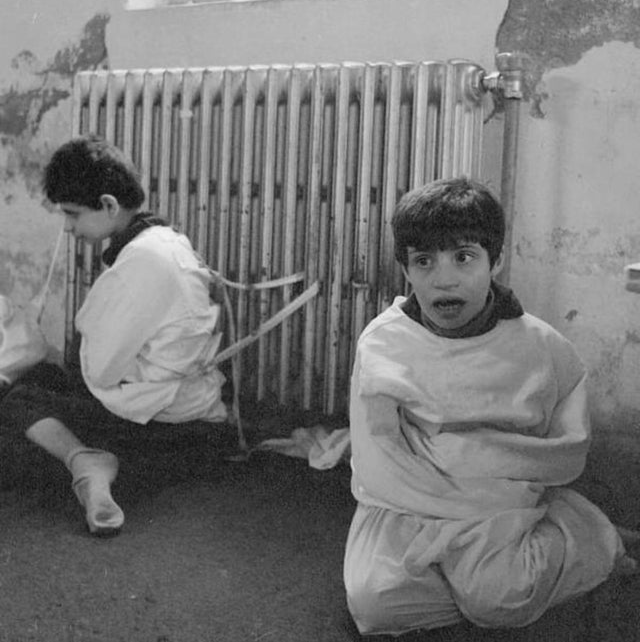
When I first came to work, I was interested, because not every day you see the same delirium tremens, exacerbation of schizophrenia, people with hallucinations. At first, it was curious what the patients had in mind in general, how they themselves comment on their condition after stabilization. But the interest lasted at most one or two years, over time everything merged into one mass: the patients are all the same, hallucinate, delusional, they are given the same diagnoses.
The working morning begins with the transfer of the shift, laying out and dispensing drugs to patients, breakfast, procedures: injections, infusions, work with documents. And so four times a day, at night again work with documents - we are on duty for days. All this in parallel with the reception of incoming patients. We have four people on a shift: an attending or on-call doctor, a nurse, an orderly, and a nurse. The doctor makes appointments, the nurse fulfills them, monitors the condition of patients.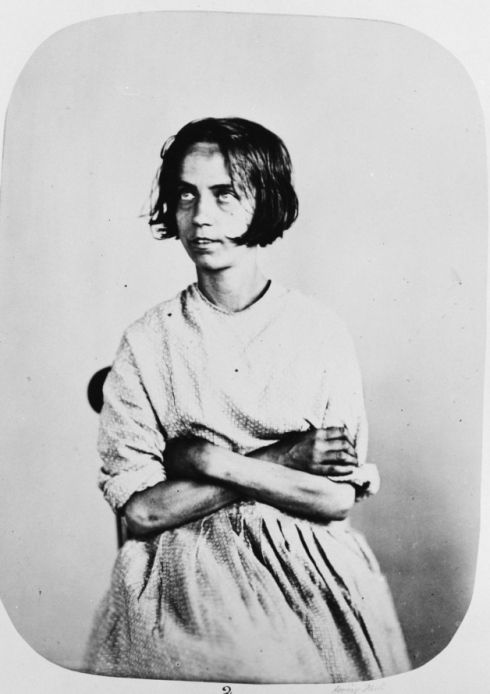 The orderly accompanies the nurse, shifts and shifts severe, debilitated patients, performs fixation if necessary, and helps the nurse perform manipulations. The nurse is responsible for current and general cleaning, helps the nurse and orderly.
The orderly accompanies the nurse, shifts and shifts severe, debilitated patients, performs fixation if necessary, and helps the nurse perform manipulations. The nurse is responsible for current and general cleaning, helps the nurse and orderly.
Sometimes there are times when you want to quit. The last time was after the so-called reorganization of psychiatric hospitals, when salaries were sharply reduced by almost half.
In general, for several years now I have realized that working in psychiatry is a degradation of a specialist.
The work is the same all the time, it does not use even a third of the skills acquired during training, because, apart from basic manipulations like drips and injections, you do nothing.
Patients are different, relationships with them too. There are patients, due to their nature and diseases, who are closed, communicating in monosyllables, there are, due to the same factors, talkative, who themselves tell everything, everything, everything, even when you ask them to stop.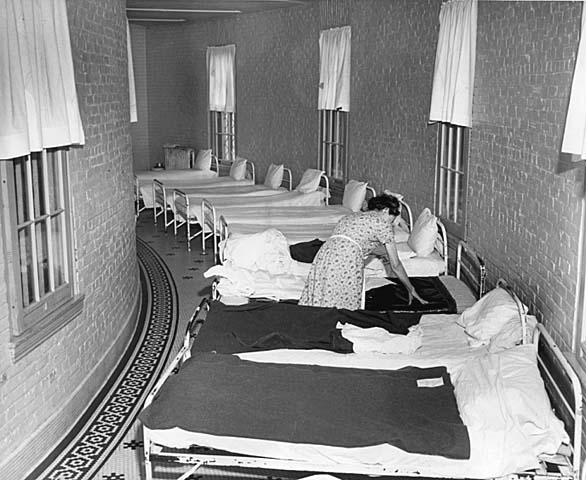 Ethics and deontology are important in psychiatry (medical deontology is a set of ethical norms and principles of behavior of medical workers. - Note ed. ). Of course, they feel sorry for them. Sometimes you think: how do they poor people live like this? But, like everywhere else, there is professional deformation, burnout, and we work not as with living people, but as with patients. No nerves are enough to sympathize with everyone , but it still slips through. I won’t say that I’m generally a very sympathetic person in my life, probably a character trait.
Ethics and deontology are important in psychiatry (medical deontology is a set of ethical norms and principles of behavior of medical workers. - Note ed. ). Of course, they feel sorry for them. Sometimes you think: how do they poor people live like this? But, like everywhere else, there is professional deformation, burnout, and we work not as with living people, but as with patients. No nerves are enough to sympathize with everyone , but it still slips through. I won’t say that I’m generally a very sympathetic person in my life, probably a character trait.
As with all people, it is important to treat patients politely, to joke somewhere, to scold somewhere, to find your own approach. I always try to explain what I'm doing and why, for example: "Now I'm going to do a drip so that you get better, don't be afraid, it won't hurt, you need to lie down for twenty minutes." I try to talk like this even with the most inadequate, and they respond and allow me to perform manipulations.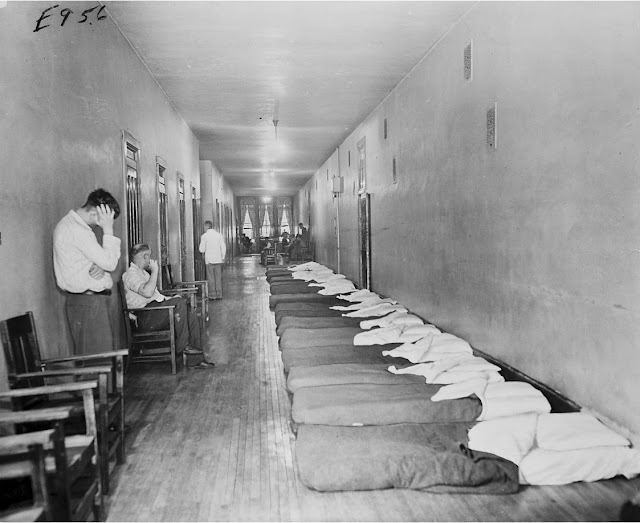
Once I was filling out paperwork at the checkpoint — it is made of reinforced glass — when a nightstand flew into it from behind. I am in shock, I ask the patient what I did to him, it turned out that he had imagined a fire, and he wanted to break the glass and save me. It seems to be from good intentions, but it seems that he could beat.
Another patient took a toothbrush, thought it was a knife, and shouting “I’ll stab!” ran at me, the orderly managed to snatch the brush from him. There was a case when the orderly fell asleep and the patient, having removed the binding, began to choke him, he almost succeeded. Another patient, also due to the inattention of the orderly, grabbed a syringe with the drug from the nurse and tried to stick it in her neck. We have a lot of this, without such patients our work does not exist.
If people show verbal aggression, then you can agree by talking, but be sure to call the orderly for insurance. Such aggression is the most pronounced, literally every second in an acute state promises to kill us, stab us, burn us .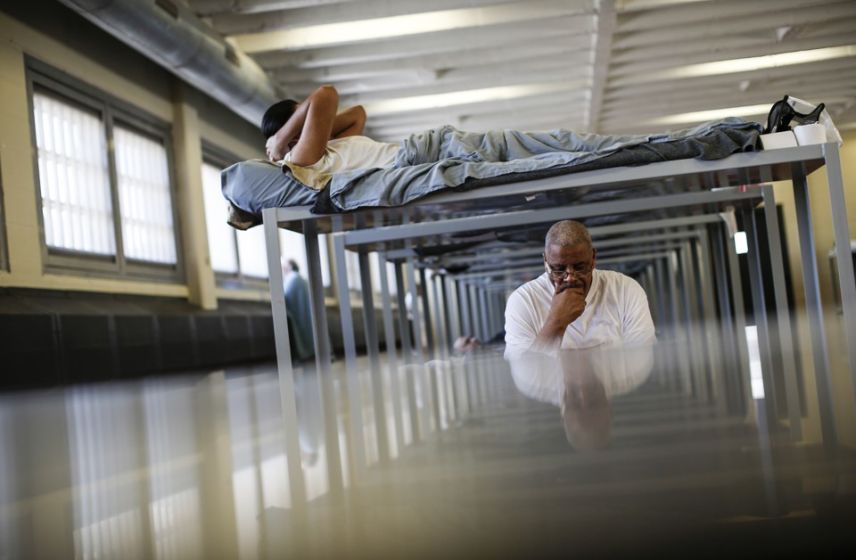 Cursing is the most harmless, and we no longer react to this, and also to threats. If the aggression is physical, and for my work we had everything: they threw furniture at the staff, broke windows, hit nurses with their heads against the wall, choked, kicked nurses, in this case we immediately inform the attending physician, fix the patient from his appointment, make injections, correct treatment.
Cursing is the most harmless, and we no longer react to this, and also to threats. If the aggression is physical, and for my work we had everything: they threw furniture at the staff, broke windows, hit nurses with their heads against the wall, choked, kicked nurses, in this case we immediately inform the attending physician, fix the patient from his appointment, make injections, correct treatment.
Patients cannot do anything for such aggression, they get sick, they have such a condition, even if they kill, well ... The only possible thing is fixation. Someone understands that something is wrong with him and agrees himself, someone swears and fights, so sometimes even four orderlies are needed to fix one patient. Beating, injuring them is unacceptable: if the doctor notices something doubtful in this regard during the examination, there will be trouble. We have a lot of junior staff fired for this. I believe that these are people who assert themselves at the expense of the weak, they will never do anything to aggressive patients, but to the fixed or mentally retarded - easily.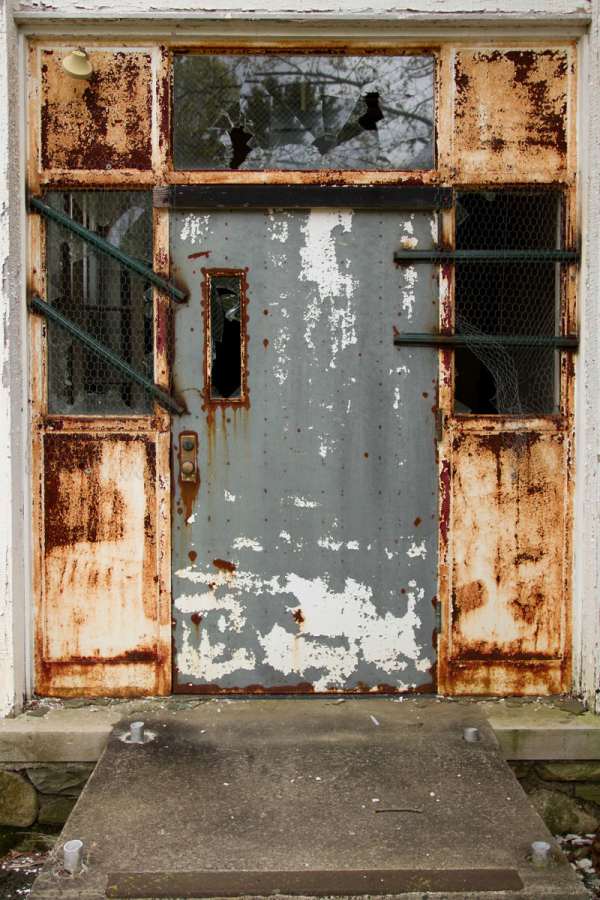 We had a nurse who directly said: "Alcohols are not people, I hate them, I would destroy them all" - this is such a position.
We had a nurse who directly said: "Alcohols are not people, I hate them, I would destroy them all" - this is such a position.
In general, I love my job, my team, my patients. I do not experience any discomfort, I do not go there by force. I do not like, as I already said, routine. In general, I want to go to intensive care, but we have a wild shortage of personnel, and nurses almost live at work, I can’t leave them. Yes, and I got attached to the team, a decent salary, vacations and all that. In society, of course, our work is underestimated. People believe that we owe something to someone, they shout: “You knew where you were going, you chose it yourself” - and this applies to any profession related to people. I treat this exactly, the main thing is that I did the work in full and provided all possible and impossible assistance to patients.
Details on the topic
“A beautiful girl cannot be depressed”: how psychiatrists violate medical ethics
“A beautiful girl cannot be depressed”: how psychiatrists violate medical ethics
“The doctor said she wanted to torture me” : people about violence in psychiatric hospitals
Behind the closed doors of psychiatric hospitals, violence is still used: physical, psychological and even sexualized.
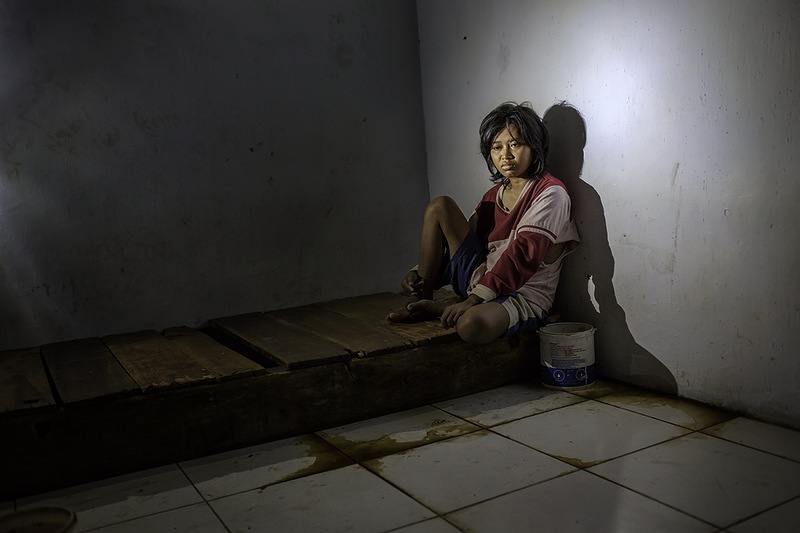 It is difficult for patients who have gone through this to defend their rights, because their words are often devalued by the presence of a diagnosis. We collected stories of people who, during treatment, faced the cruelty of medical personnel.
It is difficult for patients who have gone through this to defend their rights, because their words are often devalued by the presence of a diagnosis. We collected stories of people who, during treatment, faced the cruelty of medical personnel. “In psychiatry, results can be achieved only through a “magic pendal”
Svetlana, 21 years old
name and age changed at the request of the heroine
Since 2016, I have been observed in psychiatric hospitals. I didn't know my exact diagnosis right away. For the first time, I was in the Research Institute of Psychiatry in Moscow, then I was treated for depression. The department was clean, the doctors behaved decently, they did not swear at anyone. Impressions about this place were only positive. In 2017, I ended up in another mental hospital, because the treatment prescribed at the research institute did not make me feel better. The situation there was worse, but it cannot be called critical either.
Doctors diagnosed me with schizotypal disorder at a regional hospital in the Moscow region.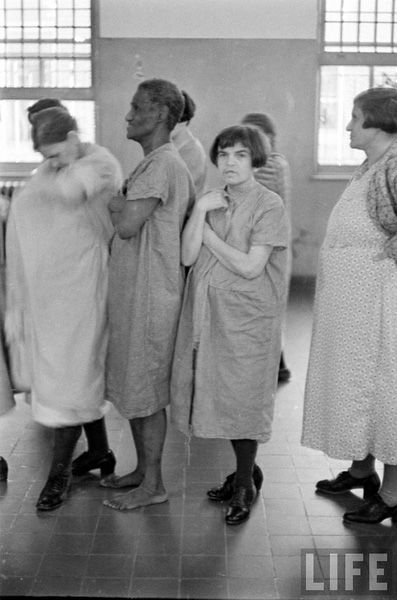 At the age of 16, I came there for treatment in the women's teenage department. The first thing that surprised me was the harsh, almost prison regime. In the morning we got up at 6.00–6.30. Then we were taken to a cramped, stuffy room, where we sat until breakfast. There were not enough benches for everyone in the room. Because of the drugs, many girls fell asleep on the floor. After breakfast, a woman came with whom we learned lessons. She was very strict with us. If someone said that he had a headache or was feeling sleepy, the teacher cursed strongly and shouted that we were obliged to study, despite being unwell.
At the age of 16, I came there for treatment in the women's teenage department. The first thing that surprised me was the harsh, almost prison regime. In the morning we got up at 6.00–6.30. Then we were taken to a cramped, stuffy room, where we sat until breakfast. There were not enough benches for everyone in the room. Because of the drugs, many girls fell asleep on the floor. After breakfast, a woman came with whom we learned lessons. She was very strict with us. If someone said that he had a headache or was feeling sleepy, the teacher cursed strongly and shouted that we were obliged to study, despite being unwell.
Then there was a quiet hour, then an afternoon snack, in which we were usually fed rotten apples. After eating, we returned to an unpleasant empty room and sat there doing nothing. We were allowed to read, but not all the girls had books with them. Sometimes the health workers offered to watch TV, but on the day of my arrival, a doctor came into the ward, pointed to one of the neighbors and said that she was at fault.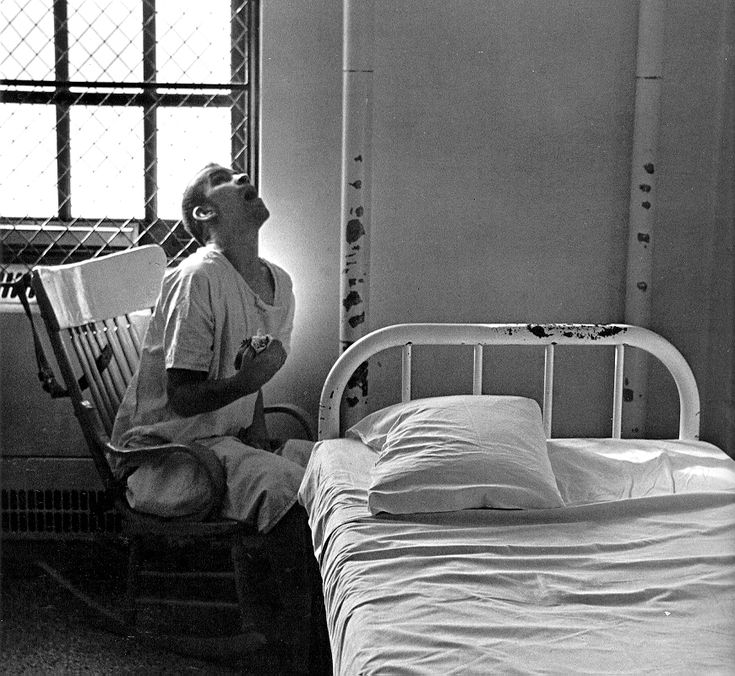 As a result, for two weeks we were all deprived of the only entertainment. We fell asleep somewhere at 20.00–21.30.
As a result, for two weeks we were all deprived of the only entertainment. We fell asleep somewhere at 20.00–21.30.
I remember cases of physical abuse. The nurses sometimes beat and pushed my neighbor in department hard. The girl could not speak normally. All she did was constantly spinning in place, which, apparently, annoyed the staff. There are not many memories of this hospital, because for almost two months I was given strong pills and most of the time I slept.
The last medical institution where I received treatment is located in the village of Mednoe-Vlasovo. In the first days after my arrival, it seemed to me that the place was generally decent compared to the previous hospital. I ended up in the adult department, where patients had more independence: we were allowed to leave the ward at our discretion, to sleep as much as we wanted.
It wasn't until after a while that I started to notice strange things. For example, we were given cigarettes three times a day after meals, which was absolutely not enough for smokers.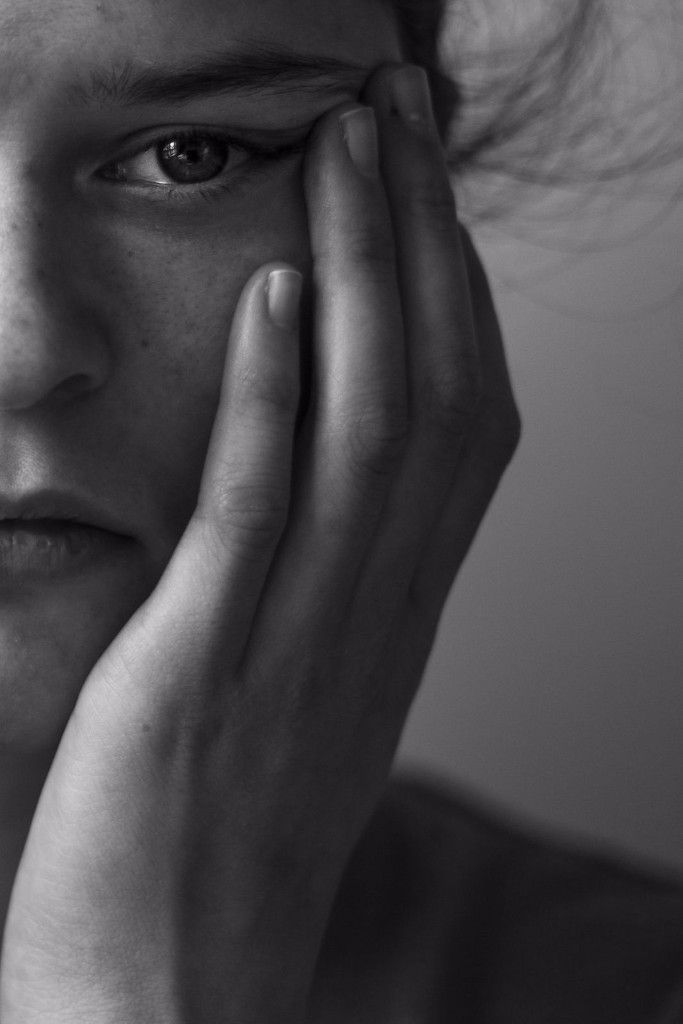 Additional cigarettes could be obtained for mopping or cleaning. Of course, we agreed to these conditions voluntarily, but in fact we had no choice.
Additional cigarettes could be obtained for mopping or cleaning. Of course, we agreed to these conditions voluntarily, but in fact we had no choice.
One day a woman was brought to the department who was chirping like a bird. The patient was given things, but she began to tear them up and throw them into the trash can.
After she ruined some T-shirts, a nurse came up and hit her in the face so hard that her nose bled. By the way, the woman with the bird's voice was beaten repeatedly.
Another time the nurse swung at her because of a misdemeanour. The patient got scared and fell to the floor, for which the hospital employee kicked her several times on the back.
Violence was also used against one of my neighbors in the department. The girl was brought in in a state of intoxication. Once in the hospital, she began to resent the actions of the staff. Then another patient, who was also being treated for alcoholism and was in good standing with the nurses, came up and hit the new one with all her might.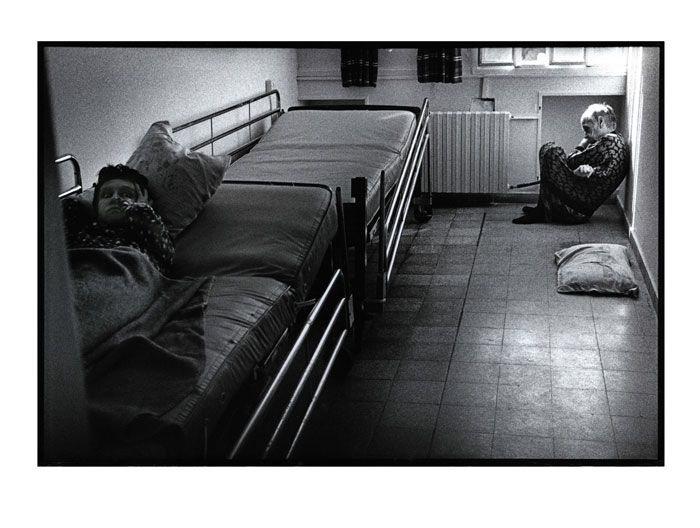 She had a bruise on her face. The patient, who was friends with the staff, generally behaved impudently: she screamed at me and other people in the department for no reason, and spread her hands. Several girls and women, among whom was myself, wrote a letter to the head physician so that he would deal with the instigator of conflicts. In response to our appeal, the head physician only laughed and said that we should not bother him because of nonsense.
She had a bruise on her face. The patient, who was friends with the staff, generally behaved impudently: she screamed at me and other people in the department for no reason, and spread her hands. Several girls and women, among whom was myself, wrote a letter to the head physician so that he would deal with the instigator of conflicts. In response to our appeal, the head physician only laughed and said that we should not bother him because of nonsense.
At some point, I told my mother about the abuse in the hospital. She came and talked to the head nurse. After their conversation, a nurse ran into my room and started shouting: “Did I really beat you? Has anyone raised a hand against you?" I was in hysterics, I could not calm down for a long time. I was called to the head nurse.
She gave me a sedative and began to explain that in psychiatry, results can be achieved only through violence, or, as they say in the hospital, "medical pendal". They say that patients cannot control themselves, so the effect cannot be achieved peacefully.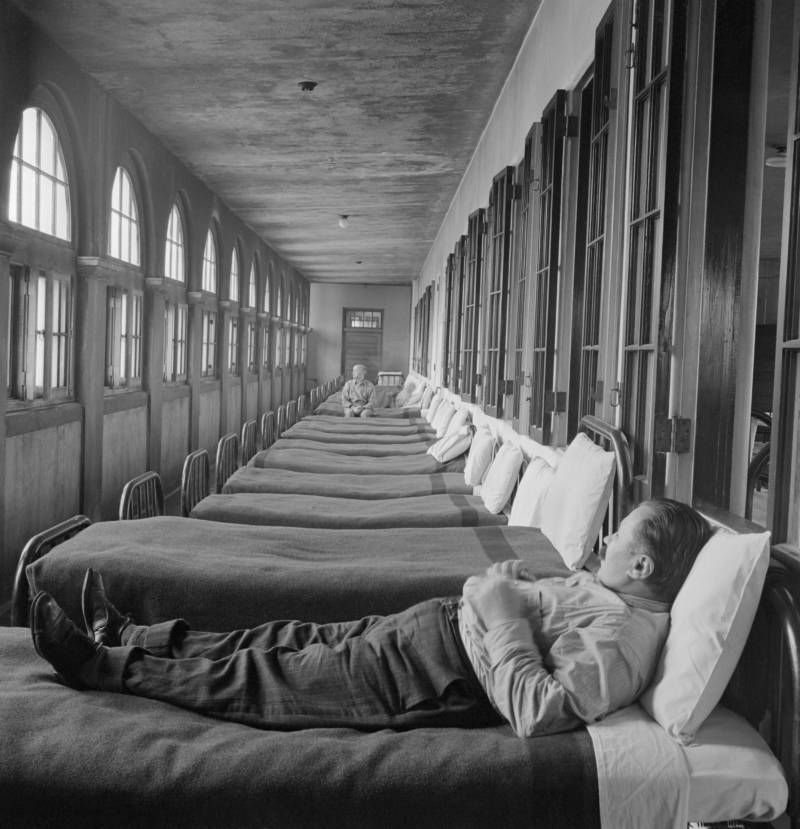
To confirm my disability, I need to go to a mental hospital once a year. After everything I've seen, I'm scared. I'm afraid to face violence again. I doubt that they will beat me: in all the hospitals where I was, they raised their hand only against patients with severe diagnoses, for whom there was no one to intercede . But looking at beatings is stressful for any person.
Details on the topic
Orderlies, prohibitions and friendship: an extract from an honest book about a psychiatric hospital
Orderlies, prohibitions and friendship: an extract from an honest book about a psychiatric hospital
“Health workers could abuse me and write everything off as nonsense”
Alexandra, 22 years old
In my life, I ended up in the psychiatric department of the Minsk hospital three times. The first time I was put there in 2012 for an examination. I was 12-13 years old. The doctors diagnosed me with paranoid schizophrenia.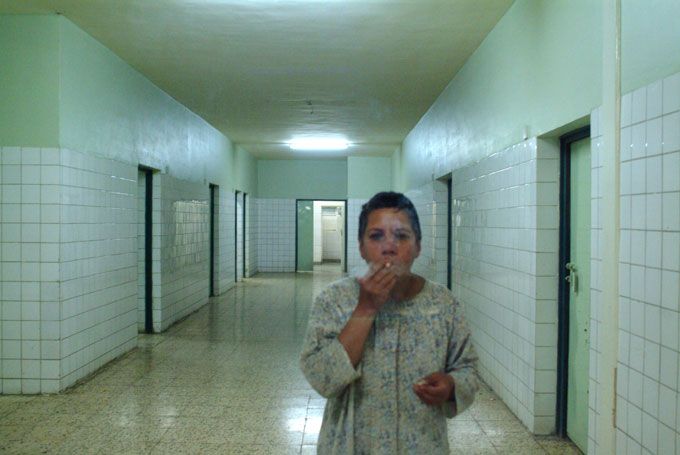
That's when I experienced sexualized abuse. It was performed by doctors who did not even work in the hospital: a freelance neurologist and a neurologist at a children's psychiatric clinic. I found out how these doctors entered the department only later. It turned out that they participated in conferences held in a medical facility. In addition, nurses helped them. I don’t know if everyone was aware, I’m sure at least about two or three hospital employees who accompanied me to the ward after the acts of violence.
One night I woke up in a medical office with a naked man standing over me. It's hard to remember what happened next. It was painful and scary.
After the incident, a nurse met me and took me to my department. On the way, she said: “There is a first time for everything. He is better than anyone else."
Violence against me was committed repeatedly, but I could not resist because of the tranquilizers that I was injected with in the hospital for a month.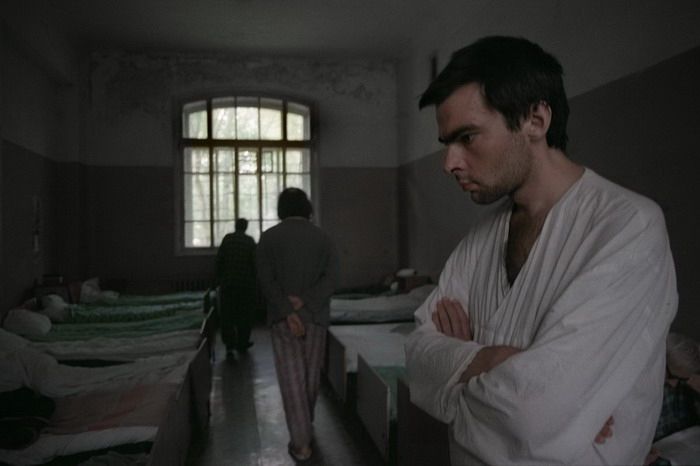 At that moment, I was so scared that I could not tell my close friends or parents about what had happened.
At that moment, I was so scared that I could not tell my close friends or parents about what had happened.
Another reason I kept quiet was psychological pressure. If a person, in the opinion of health workers, behaved badly (they were annoyed when, for example, the patient cried, complained about the conditions of treatment), they threatened that they would tie him to the bed or forbid him to go for walks.
Physical abuse also happened. Mostly young children were beaten . Orphans suffered the most from kicks and slaps on the back of the head. I remember how a little boy with Down syndrome was kicked and hit on the head for walking slowly into the canteen.
On the very first days, my parents wanted to take me out of the hospital because of the poor conditions. We were poorly fed, we were allowed to wash only once a week, there was a window without curtains in the bathroom, which overlooked the neighboring building. Unfortunately, nothing worked out for mom and dad: the administration began to threaten them with a call to the police.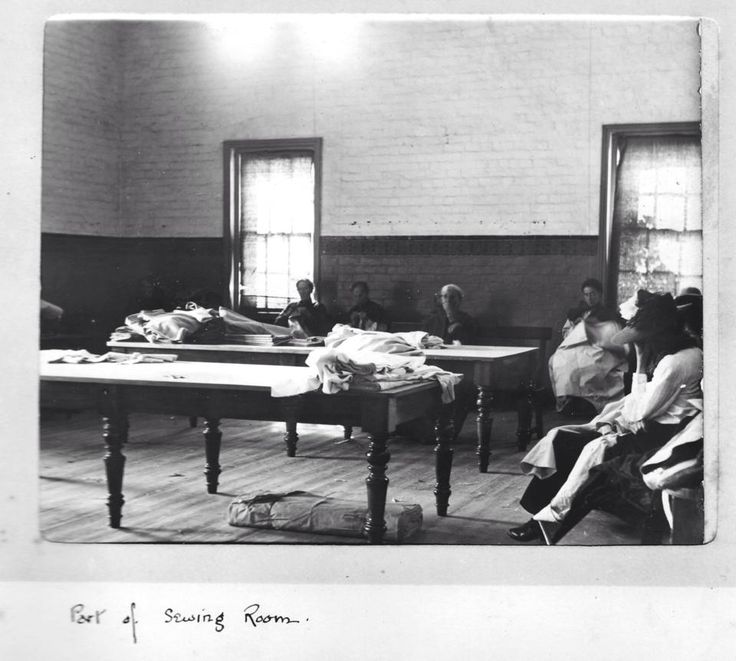 We were promised to record that I developed self-injurious behavior due to a bad relationship with my parents - this was not true. Based on the entry in the card, they promised to complain to the police that I had a dysfunctional family, and they were afraid that everything could end in the deprivation of parental rights. As a result, I completed a full course of therapy and only then returned home.
We were promised to record that I developed self-injurious behavior due to a bad relationship with my parents - this was not true. Based on the entry in the card, they promised to complain to the police that I had a dysfunctional family, and they were afraid that everything could end in the deprivation of parental rights. As a result, I completed a full course of therapy and only then returned home.
Details on the topic
“I was crushed and shamed”: how victims of sexual violence are poisoned in Russia
“I was crushed and shamed”: how victims of sexual violence are poisoned in Russia
The second time I went to the hospital was in 2014 because the prescribed treatment did not help me. There were problems with sleep, I began to hear voices. True, they sent me to the same psychiatric department not quite legally, since no one took the consent of my parents. The doctor issued a referral and told me to go to the hospital alone. In case of refusal, he threatened to call the orderlies to "convince" me.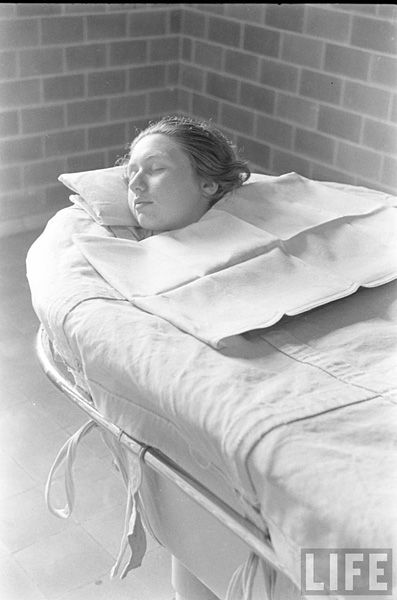 I was very scared to go back. After experiencing violence in 2012, I developed PTSD. On the very first day of my stay in the hospital, I had a tantrum.
I was very scared to go back. After experiencing violence in 2012, I developed PTSD. On the very first day of my stay in the hospital, I had a tantrum.
Memories of this period are blurred: the nurses gave a lot of pills, they constantly injected tranquilizers. Once there was an overdose, I was pumped out . As far as I remember, then there were also episodes of sexualized violence, which were committed by the same doctors as the first time, but everything is confused in memory. From time to time, I noticed very characteristic bruises and injuries on the hips, chest and groin. I turned to my doctor and asked to be taken to a gynecologist, because the drug prescribed by him caused a side effect - I got milk from my chest. As a result, the gynecologist refused to examine me on the chair, probably because then I would have to admit the fact of violence.
When I decided to tell my parents, they did not immediately believe me, but after a while my mother wanted to write a statement to the police.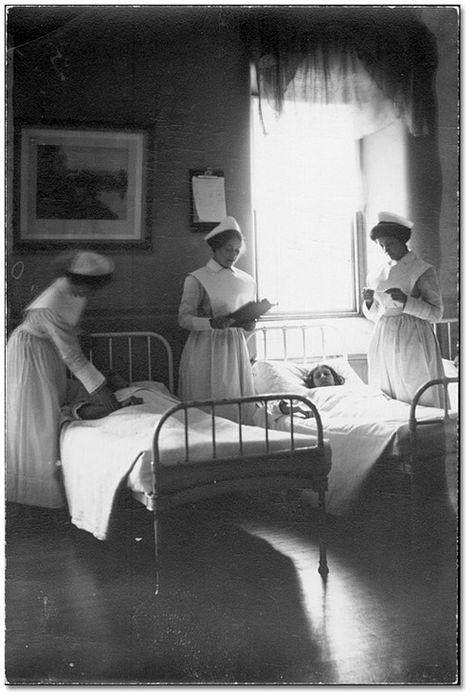 I forbade her, because at that time I was still in the hospital and was afraid that the staff might start acting tougher towards me.
I forbade her, because at that time I was still in the hospital and was afraid that the staff might start acting tougher towards me.
After I was discharged, fear won again, I did not go to the police. I understood that the rapists have money, connections and a good reputation, and I have a diagnosis that can devalue any of my testimony. In addition, I was afraid that doctors would make many false entries in my medical record, which would make me even more defenseless during treatment in the hospital.
The third time I ended up in the same Minsk hospital was in 2016: I tried to remove the diagnosis, because in fact it was used for punitive purposes. Until the age of 18, this can be done if, during the examination, you visit a neurologist and a psychiatrist, pass tests and prove that you have no symptoms of the disease. After adulthood, the procedure becomes more complicated.
Because of the record of schizophrenia, I could be taken to the hospital at any moment, abused, and in the end write off everything as nonsense.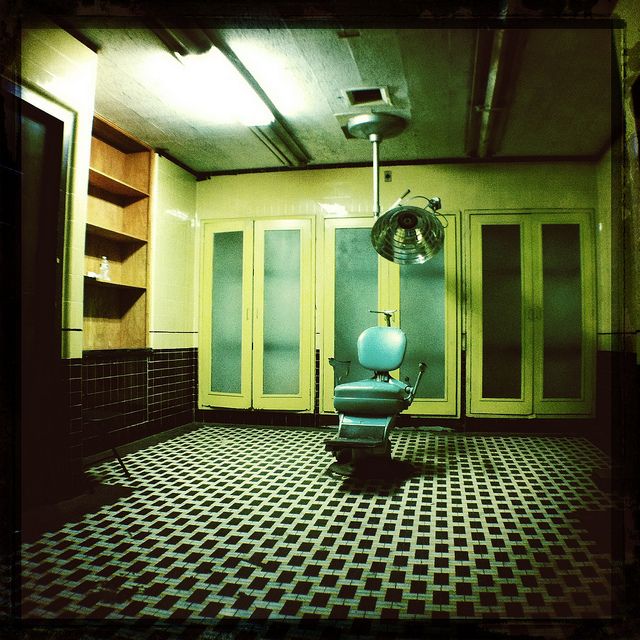 When I told the attending psychiatrist about the rape, he refused to remove the diagnosis and told my mother that I was hallucinating.
When I told the attending psychiatrist about the rape, he refused to remove the diagnosis and told my mother that I was hallucinating.
I had no evidence of violence, and he confidently explained my words as an exacerbation of the disease. By the way, the current psychotherapist gave me dissociative identity disorder and post-traumatic stress disorder, not schizophrenia.
In 2018, when I became an adult PND and ceased to depend on doctors from the children's hospital in Minsk, I still found the strength in myself and decided to go to the police, despite the risks. Around the same time, I began to actively develop my Instagram. She posted posts about what was happening in the psychiatric department of the Minsk hospital. I was contacted by two girls who were also raped in the same department, and together we filed a complaint. Several serious inspections were carried out at the hospital. However, they refused to initiate a criminal case against me (, a notice of refusal to initiate a criminal case is at the disposal of the editorial board ).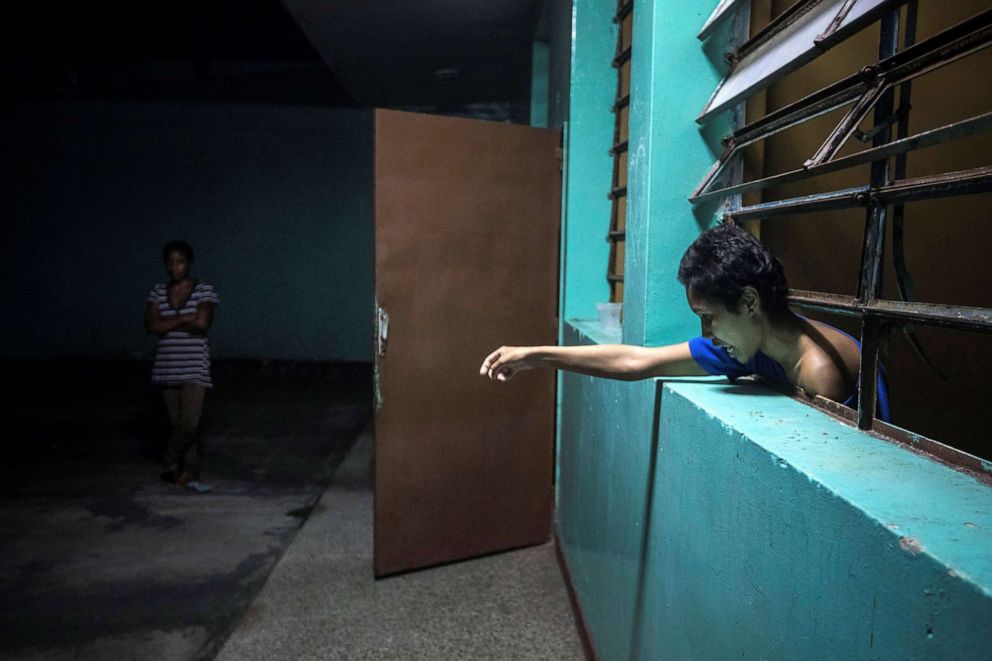 The investigators questioned my testimony because I have a mental illness and believed the doctors.
The investigators questioned my testimony because I have a mental illness and believed the doctors.
I publicly spoke about the abuse on Instagram only when I applied. The story quickly spread across the Internet, it was also published on the Dvach forum, where there are separate discussions for harassing people. They began to threaten me. The attackers sent me my Minsk address, a photo of the windows of my room, and threatened to kill me. Once they approached me on the street and said that I was "a complete nutcase".
The state has almost no control over the work of psychiatric hospitals. Checks are carried out extremely rarely, the state authorities came to my hospital only after I wrote a statement. A year later, the teenagers who were lying there wrote that the conditions had improved. But for how long? It seems to me that sooner or later everything will return to its previous state. After my experience, I stay away from state mental hospitals, no matter how bad I feel.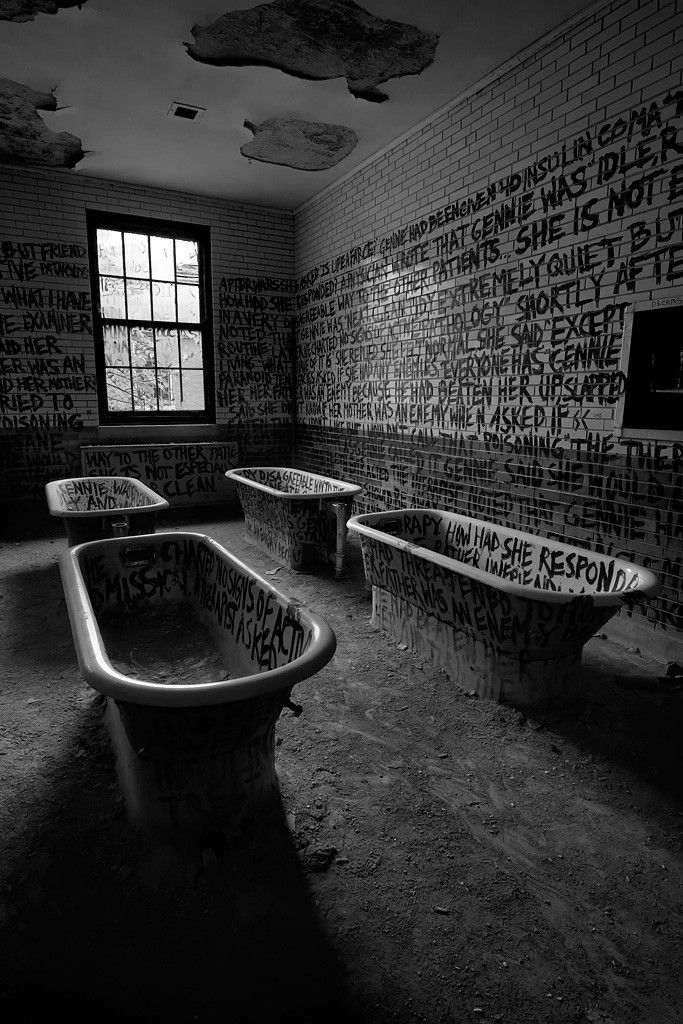
Details on the topic
Doll says to kill mother: stories of parents whose children are schizophrenic
“The doll says to kill mother”: stories of parents whose children are schizophrenic
“The situation is such that the staff is angry with the patients, and the patients are angry with the staff”
Petr, 30 years old
Name changed at the request of the hero
5
5 The first time I ended up in a Cheboksary mental hospital was in 2012, when I was depressed. A doctor from a psychotherapy center advised me to go into it after I told about my suicidal thoughts.
I remember one morning at the dispensary we were standing in line for pills. I calmly asked what medicines we were given. The nurse refused to explain, and I, in turn, refused to take the medicine. As a result, they twisted me, put me in a bind, crushed the tablets into powder, put them in my mouth and poured water.
A few years after my first experience in a mental hospital, the doctors corrected my diagnosis and diagnosed me with pseudopsychopathic schizophrenia. In 2016, I was again advised to undergo treatment in the same place.
In 2016, I was again advised to undergo treatment in the same place.
The acute department was undergoing renovations, so patients from the ward under investigation were temporarily accommodated next to us. There are people who are waiting for the conclusion of a psychiatrist. Depending on the doctor's decision, some are sent to prison, others to compulsory treatment. I had a conflict with the person who committed the murder, because he behaved aggressively and loosened his hands. The medical workers did not even try to sort out the conflict and punished me with injections. They had unpleasant side effects: I could not sleep, I experienced causeless fear and anxiety for a long time.
When the patient did not obey, the nurses turned to physically strong men, including me, to wring his hands behind his back, hit him and put him in a binder.
Sometimes the patients were really violent and the staff needed help. However, medical workers encouraged excessive cruelty.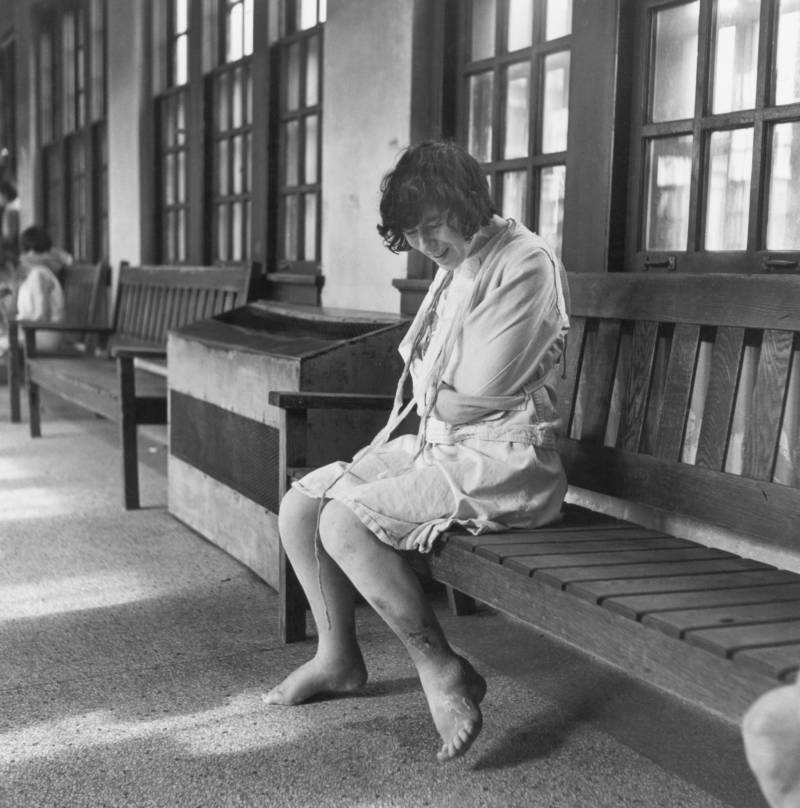 Now I am ashamed that I participated in this.
Now I am ashamed that I participated in this.
In my opinion, there are several reasons for violence. First, the medical staff gets a penny. Not only do they have a difficult profession, wages barely reach the living wage. Secondly, they work with people who have serious mental disorders, and in this atmosphere their psyche is also under pressure. I saw how the patient took backgammon and hit the nurse on the head with all his might. The situation in psychiatric hospitals is such that the staff is angry with the patients, and the patients are angry with the staff .
“The psychiatrist, laughing, said: ‘Look, I brought the girl to tears.’”
Tatyana, 21 years old
The name was changed at the request of the heroine
I was in the psychiatric ward of the Saratov hospital twice. I first got there at the age of 16 with a loss of adaptation and obsessive suicidal thoughts. Conditions in the hospital were terrible. In the two weeks of my treatment, I never took a shower because the paramedics took no more than six people there a day.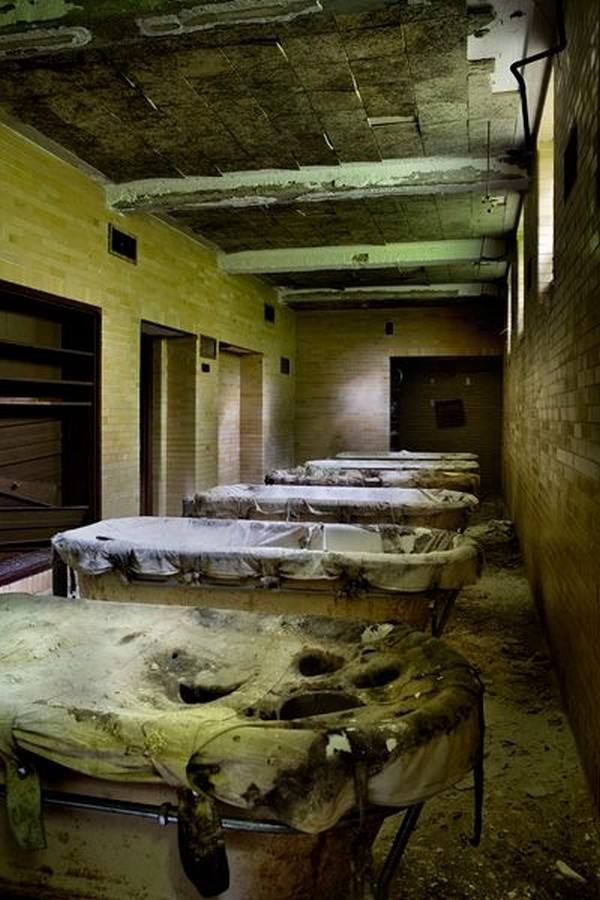 There were two cubicles in the toilet that did not close. The orderlies and nurses on duty drank from time to time. My friends and I often found bottles of alcohol in the shared trash can. In addition, there was no separation of patients in the department either by age or, even worse, by diagnosis. I was afraid of death, although I was tormented by suicidal thoughts, and next to me lay a girl who came up and said that she had an obsessive desire to kill someone.
There were two cubicles in the toilet that did not close. The orderlies and nurses on duty drank from time to time. My friends and I often found bottles of alcohol in the shared trash can. In addition, there was no separation of patients in the department either by age or, even worse, by diagnosis. I was afraid of death, although I was tormented by suicidal thoughts, and next to me lay a girl who came up and said that she had an obsessive desire to kill someone.
I had trouble sleeping in the hospital. Instead of solving them, the doctors began to give a heavy drug, from which I sometimes lost consciousness. In the morning I could go out for a smoke (teenagers were given cigarettes every 2 hours on general terms), fall down and pass out for a couple of minutes. The nurses did not react to this at all.
An elderly woman, Natalya, was lying in our department. She often asked the nurses for permission to call her mother on the landline. The staff got fed up with it. Once, after an afternoon snack, Natalya approached the nurse with a request, she turned the woman around and pushed her in the coccyx.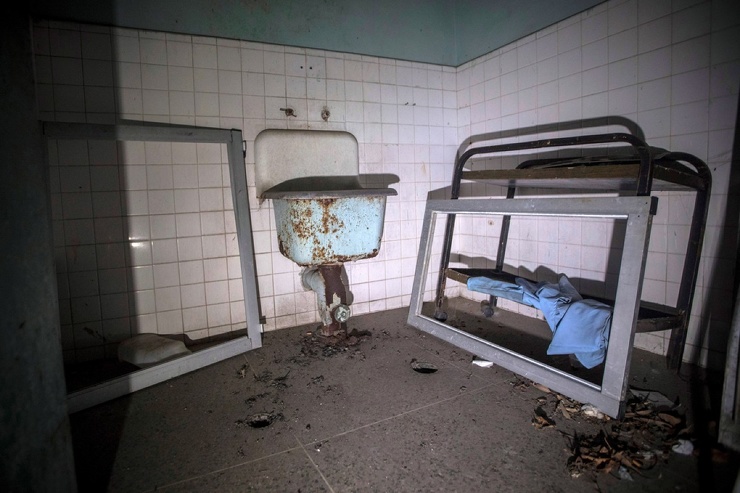 The patient fell to her knees. I ran up, started to find out what was going on, but the paramedics locked themselves in their room.
The patient fell to her knees. I ran up, started to find out what was going on, but the paramedics locked themselves in their room.
In my opinion, violent methods were also used to treat girls with eating disorders. I personally saw how health workers simply put the girls at the table and forcibly forced them to eat, despite the fact that they were sick.
Patients were constantly threatened with mating for any action that was not liked by the staff. For example, a grandmother, who wandered in delirium along the corridors of the building, was tied to a bed so as not to be followed. An elderly woman lay like this for days .
Violence was committed not only by orderlies and nurses, but also by some patients. I was treated by a woman who was the daughter of the head of one of the Saratov hospitals. Olga constantly showed aggression: she screamed at other patients, kicked them, and threw heavy things. The staff absolutely did not react to all her misdeeds.
Two weeks later, when I left the hospital, I was happy because I was saying goodbye to this nightmare. Suddenly, a nurse came up and said: “Well, why are you smiling? You will come back here, don't worry."
Unfortunately, I did come back at 19. The second time I was treated for depression and again for suicidal thoughts. The psychiatrist said that I was a threat to my life and offered to return to the same hospital. I was insanely scared, but the doctor convinced me that she knew a specialist in the psychiatric corps who would really help achieve a stable remission and get rid of thoughts of suicide.
When I went to the hospital, went to the doctor and told her about my mental state, I heard in response: “Why are you depressed? You have a place to live, young man." I fell into a stupor, because, in my opinion, such words speak of unprofessionalism.
More on the topic
“A beautiful girl cannot be depressed”: how psychiatrists violate medical ethics
“A beautiful girl cannot be depressed”: how psychiatrists violate medical ethics
During my second stay in the hospital, I encountered with psychological abuse.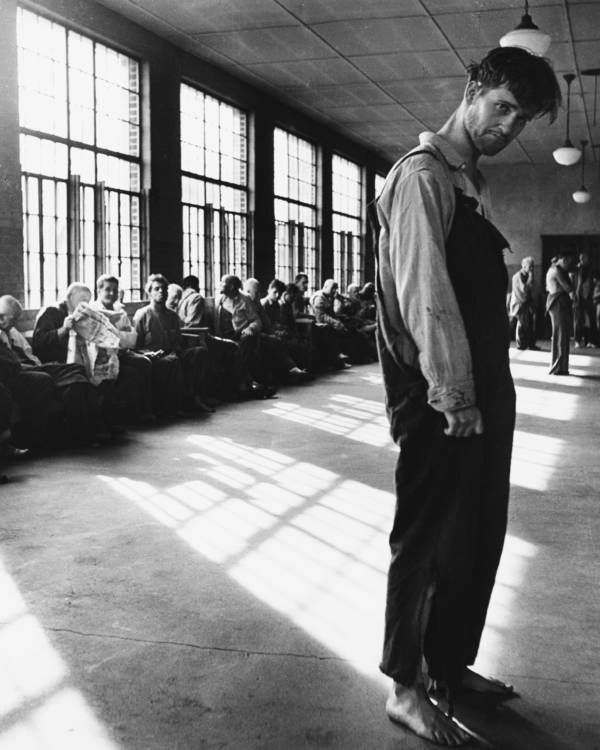 Usually, phones for communication with relatives are allowed to be taken starting from the second week. I noticed that the necessary time had already passed, but I still did not get the opportunity to talk with my mother. When I turned to the psychiatrist with a question about why they didn’t give me a phone, she turned around and answered with a grin that she wanted to torture me. I tried to argue something, but the woman began to be rude to me and said that if I didn’t stop behaving badly, in a couple of years I would return and be in the ward for the violent. I cried, ran away from the office to my room. Literally a few minutes later, a psychiatrist came in and, laughing, said: “Look, I brought the girl to tears.”
Usually, phones for communication with relatives are allowed to be taken starting from the second week. I noticed that the necessary time had already passed, but I still did not get the opportunity to talk with my mother. When I turned to the psychiatrist with a question about why they didn’t give me a phone, she turned around and answered with a grin that she wanted to torture me. I tried to argue something, but the woman began to be rude to me and said that if I didn’t stop behaving badly, in a couple of years I would return and be in the ward for the violent. I cried, ran away from the office to my room. Literally a few minutes later, a psychiatrist came in and, laughing, said: “Look, I brought the girl to tears.”
I was treated by a man. At the sessions, we discussed why I am afraid of people of the opposite sex. During the conversation, I said that I was afraid of being raped. In response, I heard: "If you do not provoke men, then everything will be fine." Then he began to prove to me that the woman herself could be to blame for the rape, and to assert that "no" for a girl does not always mean "no".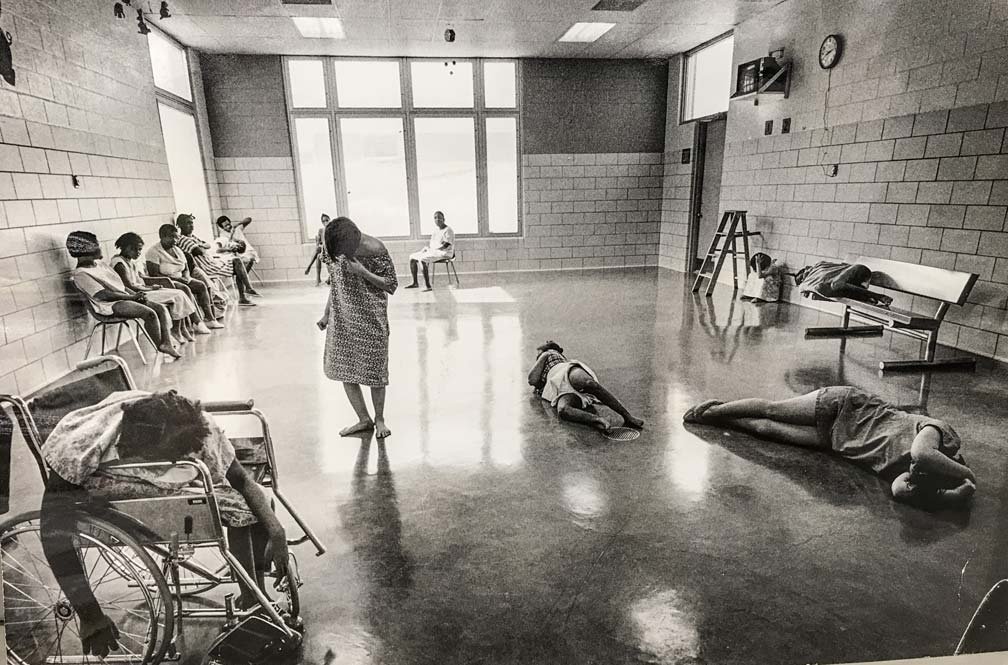
During the sessions, the therapist sometimes put his hand on my knee, which further exacerbated the fear.
Therapy and prescribed pills did not help me. At some point, my blood pressure increased and I started having problems with menstruation from antidepressants. I told my doctor that my body was not responding well to the drugs. In response, the woman only rolled her eyes, but did nothing.
A month later I left the hospital. I did not feel better, thoughts of suicide did not disappear anywhere. With the psychiatrist who suggested that I go there, I agreed to call after the end of the course of treatment and continue therapy. When I dialed the number, it turned out that both me and my mother were on her blacklist.
Now I don't have a psychiatrist, I work with an ordinary psychologist. Unfortunately, I do not have the opportunity to pay for several doctors at once and buy pills. At the same time, I am afraid to go back to the hospital, but my condition is not improving. One gets the feeling that there is nowhere to wait for help .
One gets the feeling that there is nowhere to wait for help .
What to do if the medical staff in mental hospitals exceeds their authority?
Victor Lebedev
Psychiatrist, science journalist, member of the expert council of the Altsrus Foundation
The law "On psychiatric care and guarantees of the rights of citizens in its provision" includes the concept of "measures of physical constraint and isolation." The term implies various ways to make the patient immobile for a certain period of time in order to cope with his aggression. Conventionally: an orderly binds a violent patient, gives an injection and then unties him. The law provides for measures of physical constraint to prevent harm to one's own health or the health of others. If a patient in psychosis destroys the department, it is difficult to stop him without the use of force. As a rule, orderlies use bindings - wide strips of fabric that allow you to securely fix the patient. From the point of view of the law, this is not violence, but one of the labor functions of medical personnel.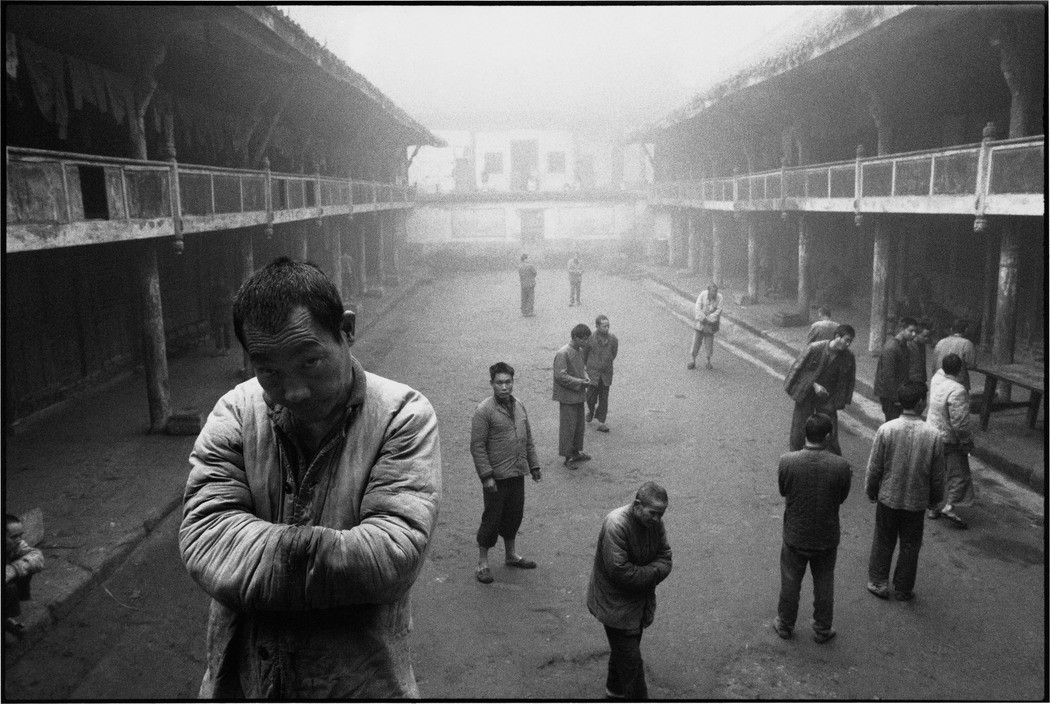 In addition, when applying measures of physical restraint, it is necessary to make an entry in the medical documentation. If it is not there, then the actions are illegal.
In addition, when applying measures of physical restraint, it is necessary to make an entry in the medical documentation. If it is not there, then the actions are illegal.
Of course, if the patient's teeth were knocked out, and the medical history indicates that he was tied up, then there is an obvious discrepancy. However, cases of violence in psychiatric hospitals are difficult to investigate. Health workers can always say that patients fought among themselves. It is difficult to prove the opposite: as a rule, there are no cameras in psychiatric hospitals. And in a pandemic, access to the department is closed.
Article 46 of the Law on Psychiatric Care describes how public control over the activities of psychiatric hospitals should be carried out. But in reality, if there is control, then it is formal. Representatives of public organizations who want to look at the living conditions of patients in a medical institution must agree on their visit and sign an obligation of non-disclosure of medical secrets.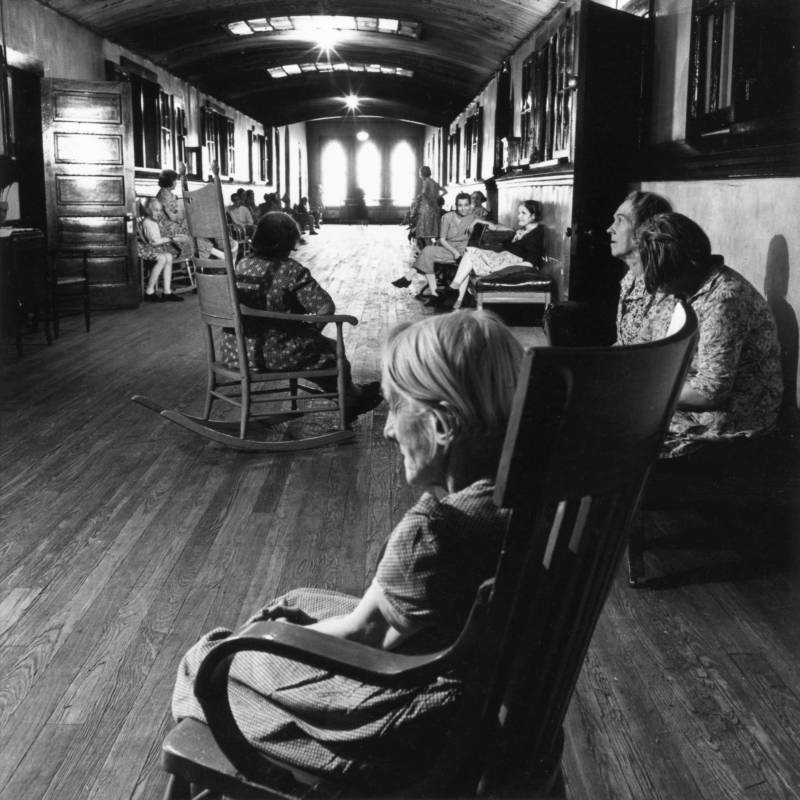 You can see anything in the hospital, but it is forbidden to talk about it publicly. Even the presence of physical injuries in patients in this context is included in the concept of "medical secrecy" . This part of the law is poorly written. Unfortunately, psychiatric hospitals remain extremely closed, and violence can only be prevented by openness.
You can see anything in the hospital, but it is forbidden to talk about it publicly. Even the presence of physical injuries in patients in this context is included in the concept of "medical secrecy" . This part of the law is poorly written. Unfortunately, psychiatric hospitals remain extremely closed, and violence can only be prevented by openness.
If a patient has been abused, they are dealt with in ordinary criminal proceedings. Measures of temporary constraint drawn up in accordance with the law, most likely, cannot be challenged, you can try to prove the illegality of the actions of medical workers. However, during the investigation of a criminal case, a forensic psychiatric examination is mandatory, the results of which show whether the victim is able to testify. This is another obstacle that greatly complicates the path to justice for a person with a psychiatric diagnosis.
In my opinion, in order to reduce the level of violence in psychiatric hospitals, it is necessary to normalize public control.